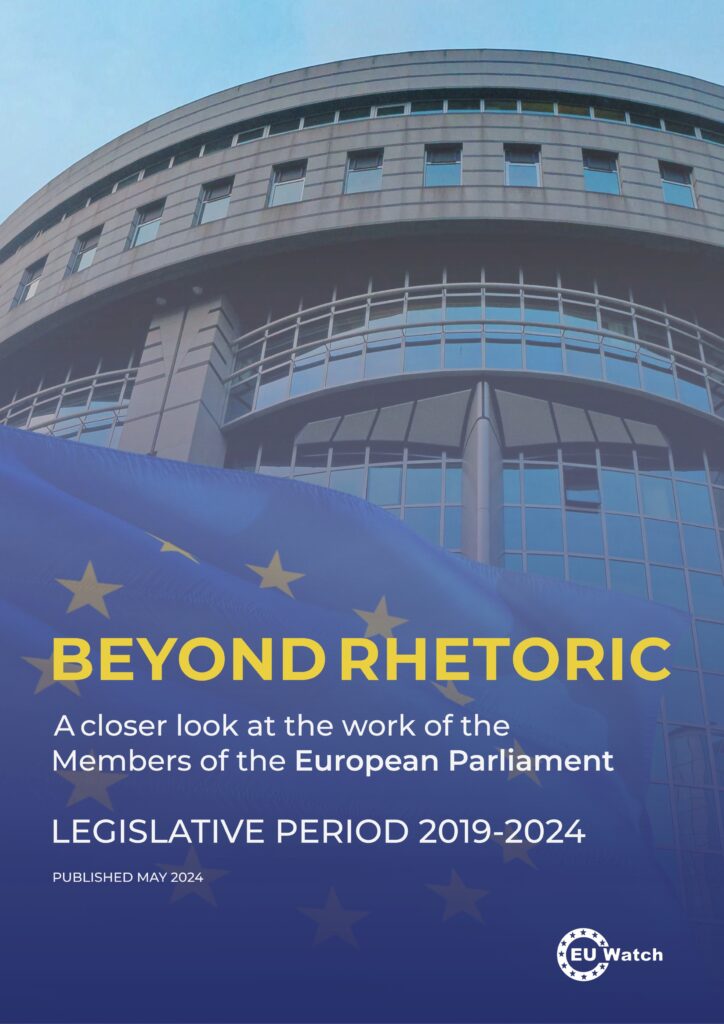Beyond rhetoric: A closer look at the work of the members of the European Parliament
Legislative period 2019-2024
A major goal of this project was to create a system how to judge and rank the activities of the MEPs in a way that would provide readers with an understandable comprehensible overview. This ranking showcases if and how our elected representatives are active and assists in gaining a deeper understanding of how different tasks of MEPs translate into involvement and consequently in lasting change.
Check out the top five and bottom five MEPs according to our ranking. You can find the full interactive table below, as well as a full overview by Committee by exploring this page.
Most Active MEPs - Top 5
Hover over their picture to read more
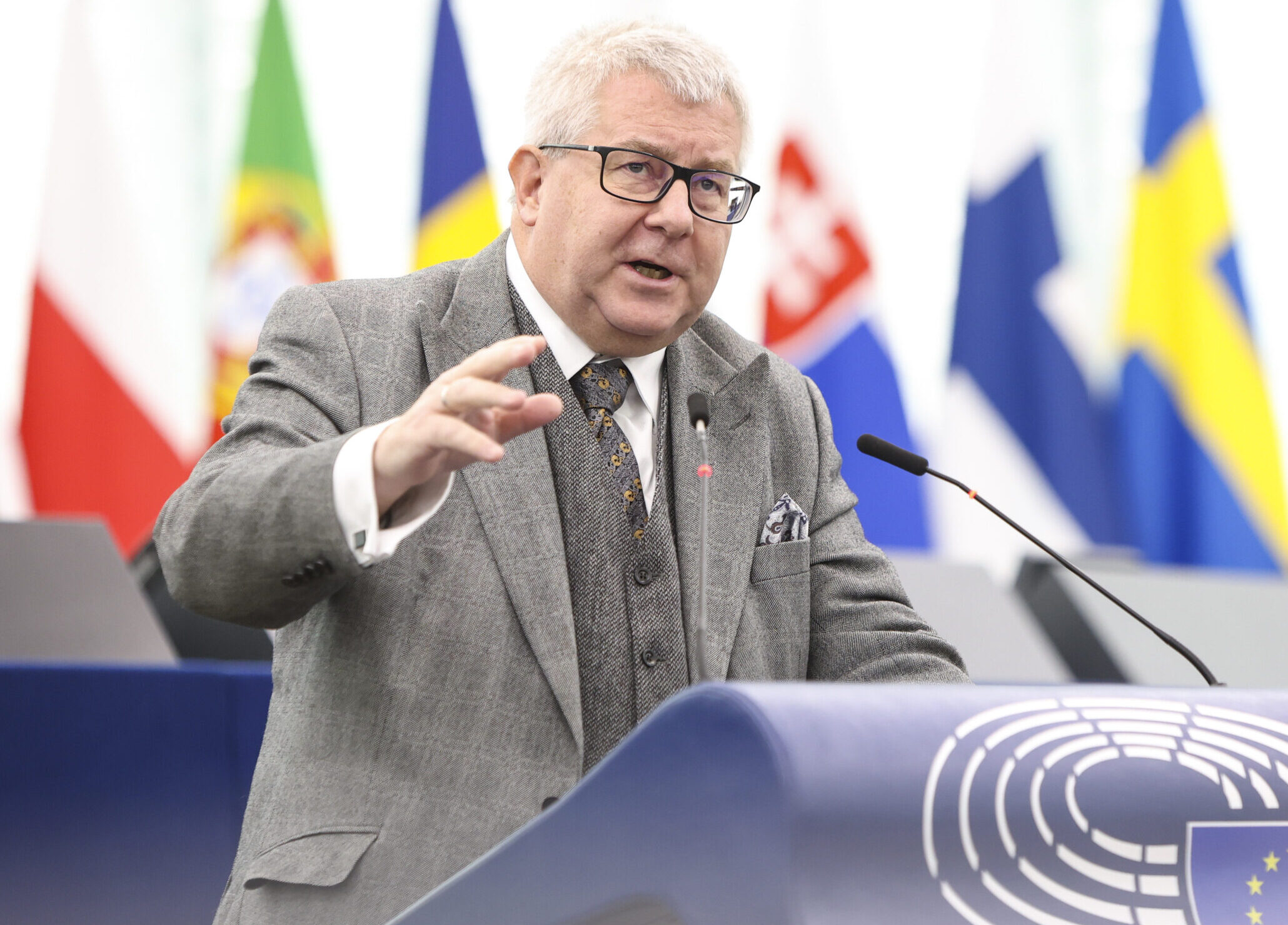
#1 Ryszard Czarnecki (Poland) / The Rapporteur
You want a report done? Call MEP Czarnecki, boasting 69 reports and being a shadow rapporteur for 129 times for his ECR Group. While not being the guy who attends a lot of Human Rights Committee meetings, he enjoys great recognition when it comes to delivering reports.
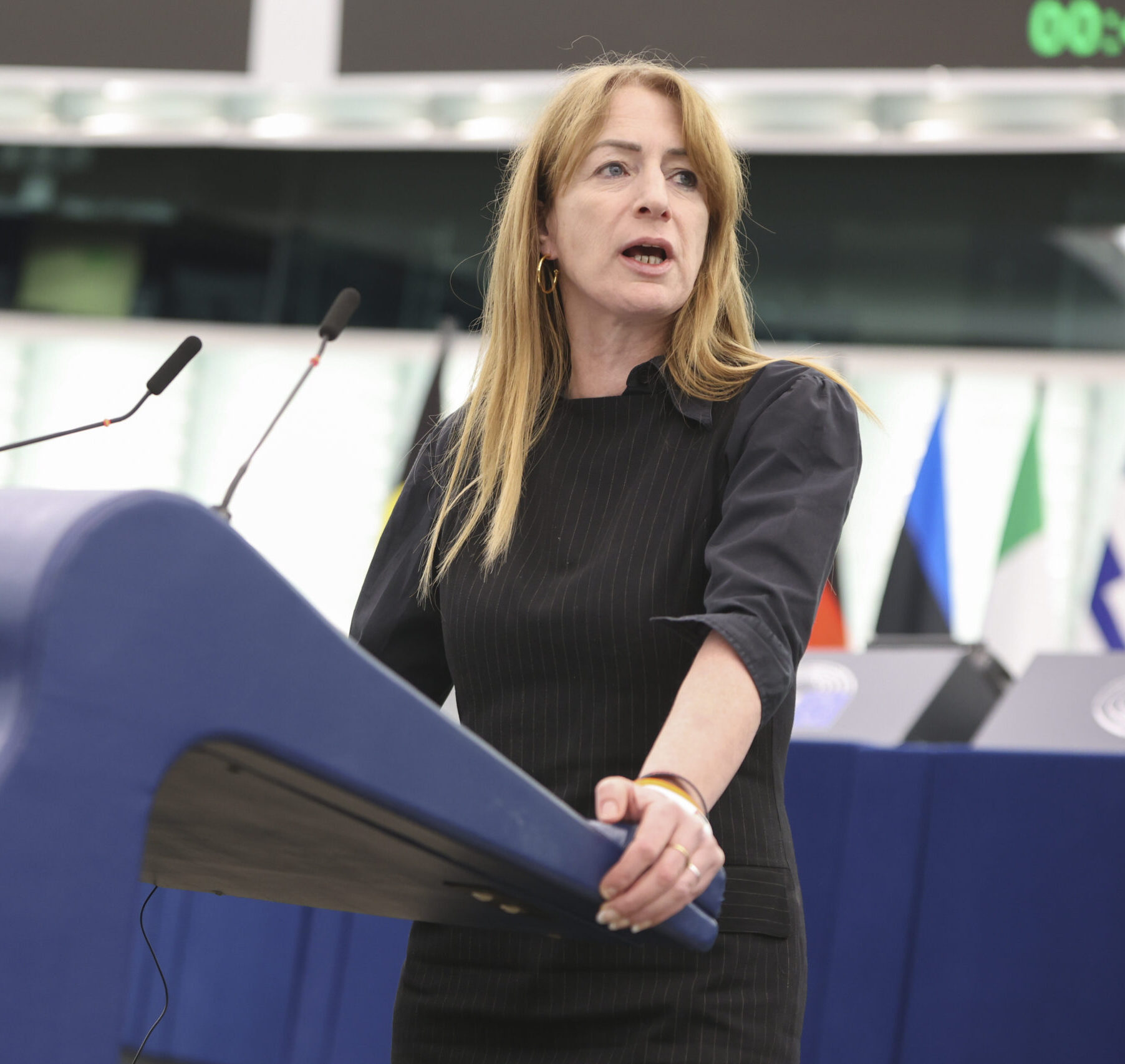
#2 Clare Daly (Ireland) / The Anti-West critic
With more than 500 speeches on the podium, many of them highly critical of the EU and its partners. MEP Daly takes the second place as she has been also a highly active shadow rapporteur for the Left group.
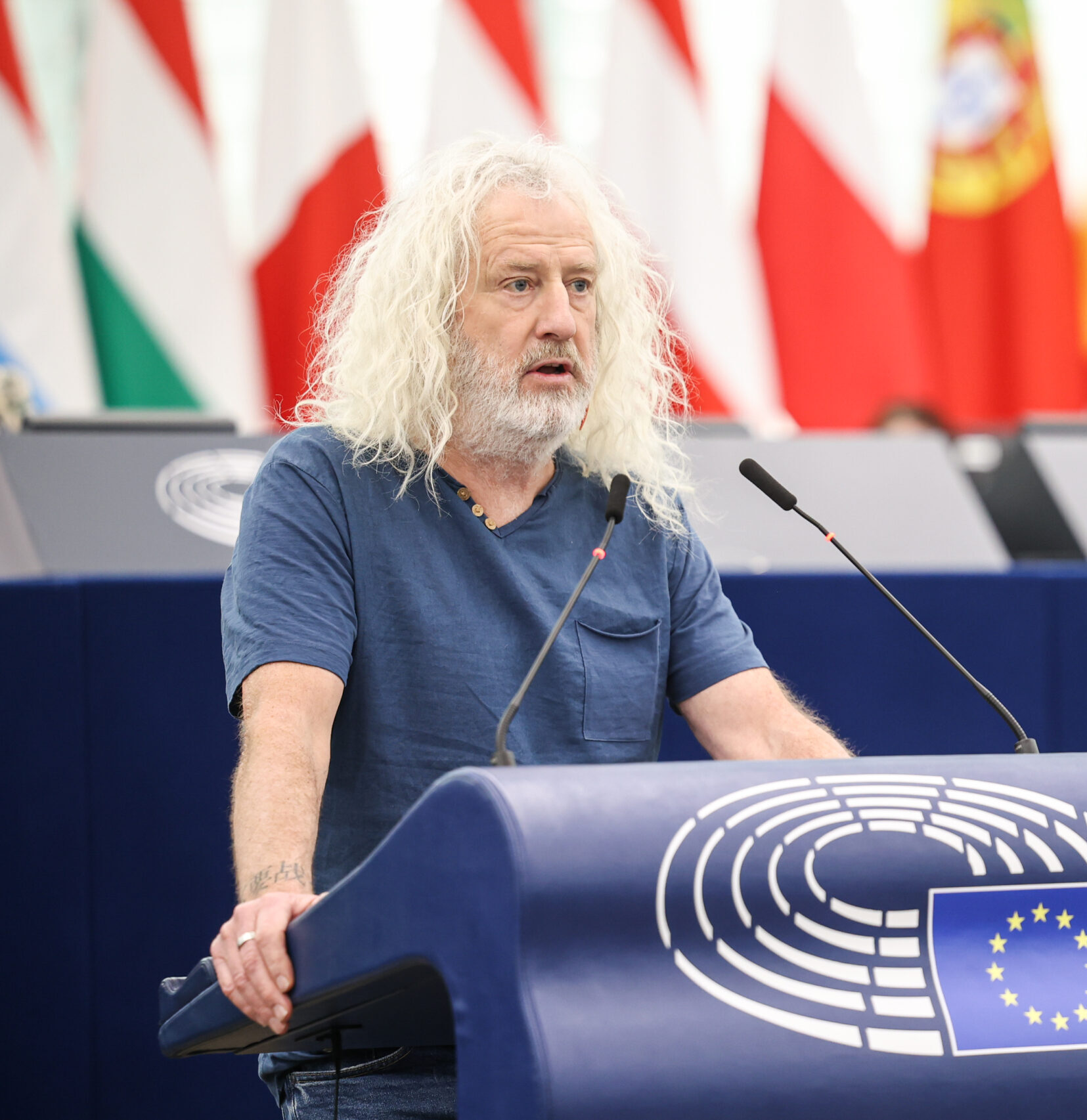
#3 Mick Wallace (Ireland) / The Talker
MEP Wallace has the most speeches of all MEPs we analysed, and as with his colleague Daly, they follow the same anti-West line. Other than that, his attendance and written questions are average, with the exception of shadow reports.
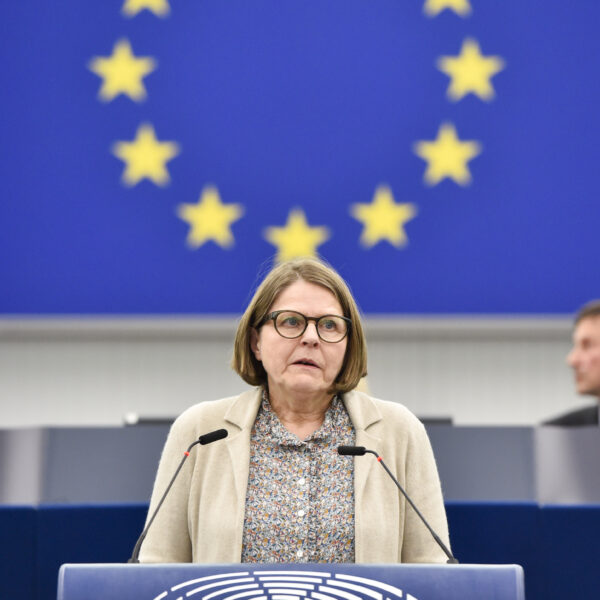
#4 Heidi Hautala (Greens/EFA/Finland) / Number One Vice-President
Finnish MEP Hautala, a Vice-President of the European Parliament is the most active among them: 534 speeches during plenary sessions and a solid track of reports and shadow reports: 10 and 23 respectively.
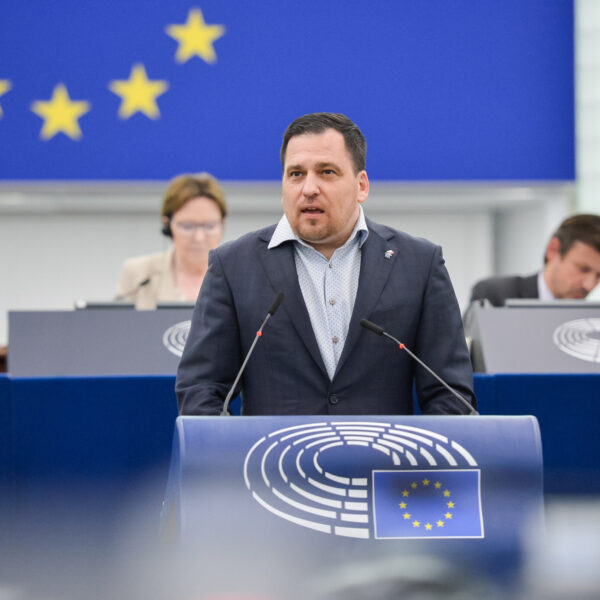
#5 Tomáš Zdechovský (EPP/Czechia) / The Budget Controller
While MEP Zdechovský might not be the person that really is into attending long Committee meetings, or speaking in front of the entire European Parliament during plenary sessions he is very CONTent with checking the EU budget: a whooping 36 reports, followed by 46 shadow reports for his EPP group and more than 140 written questions to the leaders of EU institutions.
Least Active MEPs - Bottom 5
Hover over their picture to read more
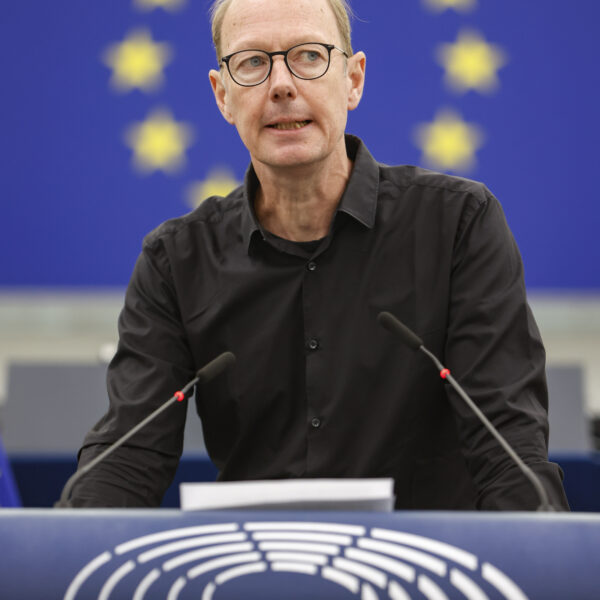
#1 Martin Sonneborn (NI/Germany)
Sonneborn has had an impressive career as co-founder of the satirical political party Die PARTEI and journalist. His achievements at the European Parliament, however, are less impressive.
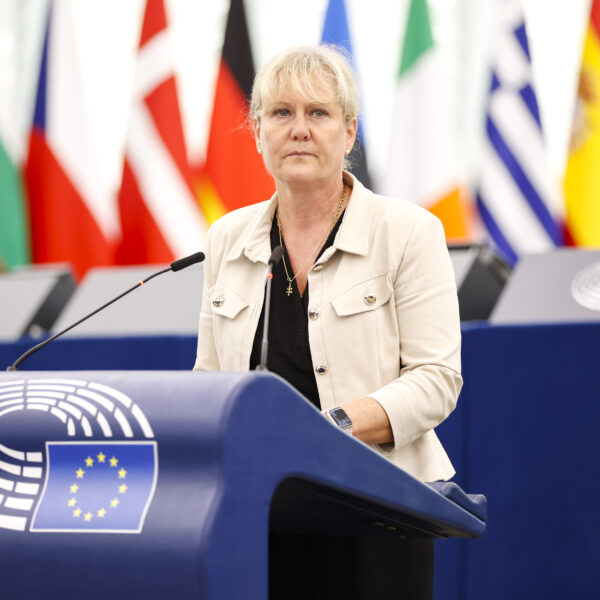
#2 Nadine Morano (EPP/France)
Who?
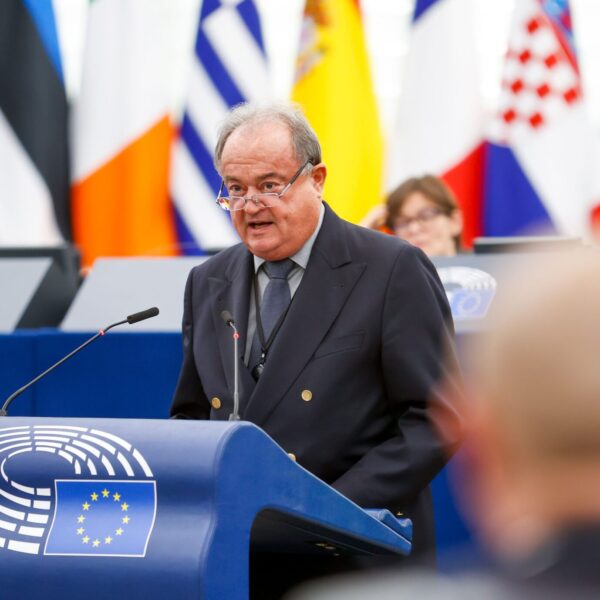
#3 Vasile Blaga (EPP/Romania)
Experienced three-time-minister from Romania made it on place 3! Wrong podium though.
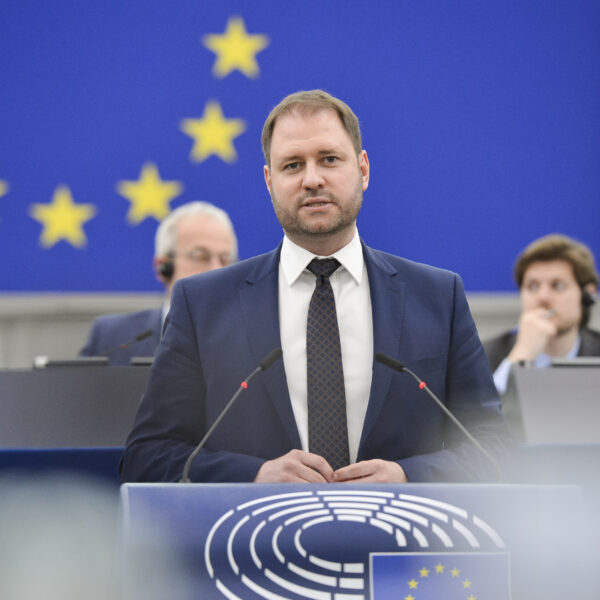
#4 Christian Sagartz (EPP/Austria
If he had just written one report....
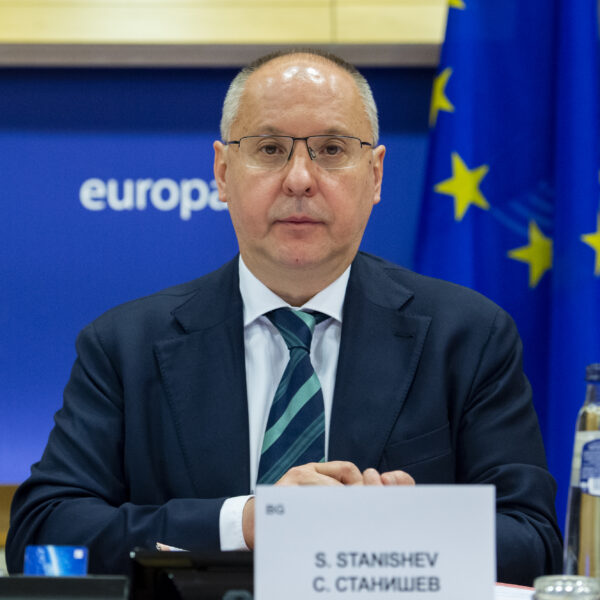
#5 Sergei Stanishev (S&D/Bulgaria)
Stanishev was charged by a court in Bulgaria for allegedly losing 7 classified documents. Now, not documents but he himself seems to be lost somewhere in Brussels. P.S A few years later he was acquitted (for the documents).
Use the table below to discover the most active and least active MEPs. Sort by ascending and descending order of points, by country, gender and political group or just simply type the name of an MEP you are interested in checking out. Don’t forget to change the pages on the table (arrows on top and below the table). Being a rapporteur and a shadow rapporteur is rewarded with the most points, followed by giving a speech at a plenary session, attending a committee meeting and sending out written questions.
Note: our data concerns the permanent members of the Committee of Foreign Affairs (AFET); Committee on Civil Liberties, Justice and Home Affairs (LIBE); as well as the subcommittees on Human Rights (DROI) and Security and Defense (SEDE). We look forward to broadening the scope and functionalities of our transparency project in the future.
The goal of this project
Our goal is to provide general insights into the Committee on Foreign Affairs by presenting data that is not easily accessible to the public through other means.
We collect and present data using quantitative and qualitative measures. The former include, for example, the number of reports (legislative projects) elaborated by members of AFET, the number of committee meetings they attended, the number of speeches they made in the plenary, etc.). Wherever possible, we use interactive charts and tables in order to allow users to search by name or other keywords and to rank individual members. We will continue to track members’ activities and update this report in regular intervals. What does it include so far?
- Number of total reports (and shadow reports) elaborated by each member of the Committee
- Number of committee meetings attended by members
- Number of speeches made by the members of the Committee in plenary sessions
- Composition of the committee by different criteria such as age group, gender, country of origin and political affiliation
- How many terms has each member of the Committee served since their first election to the European Parliament?
- How many of the members of the Committee have previously served in senior roles in government, e.g. as president, prime minister, foreign minister or defence minister?
We will expand and enhance it and add further functionalities. This project is a work in progress and we invite you to take a closer look.
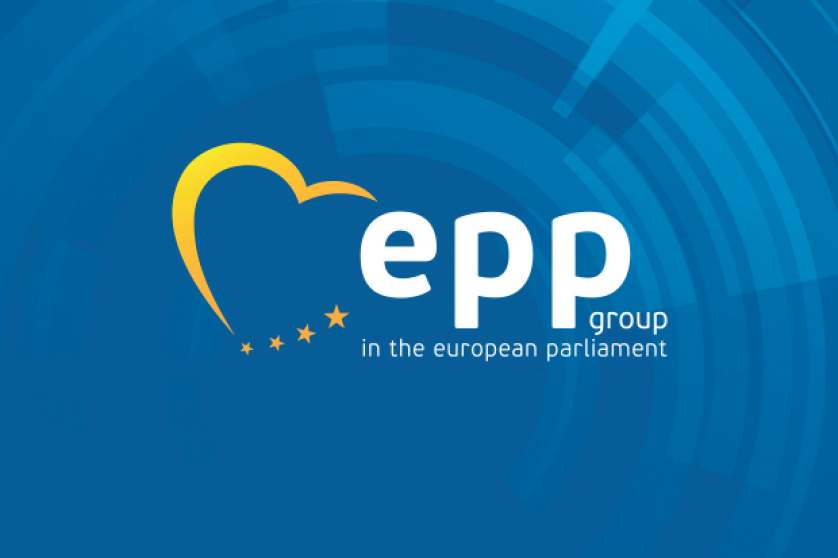
European People’s Party (EPP)
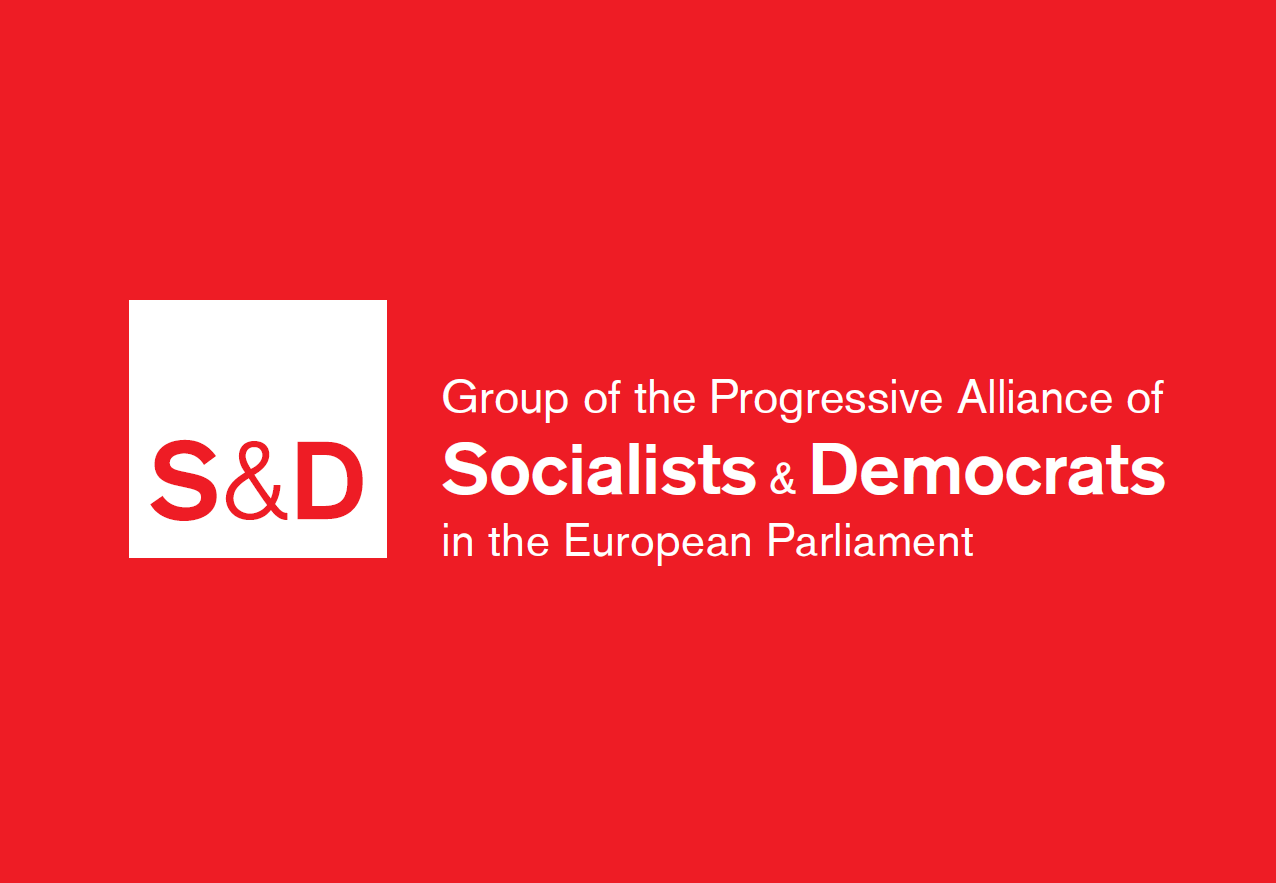
Socialists and Democrats (S&D)
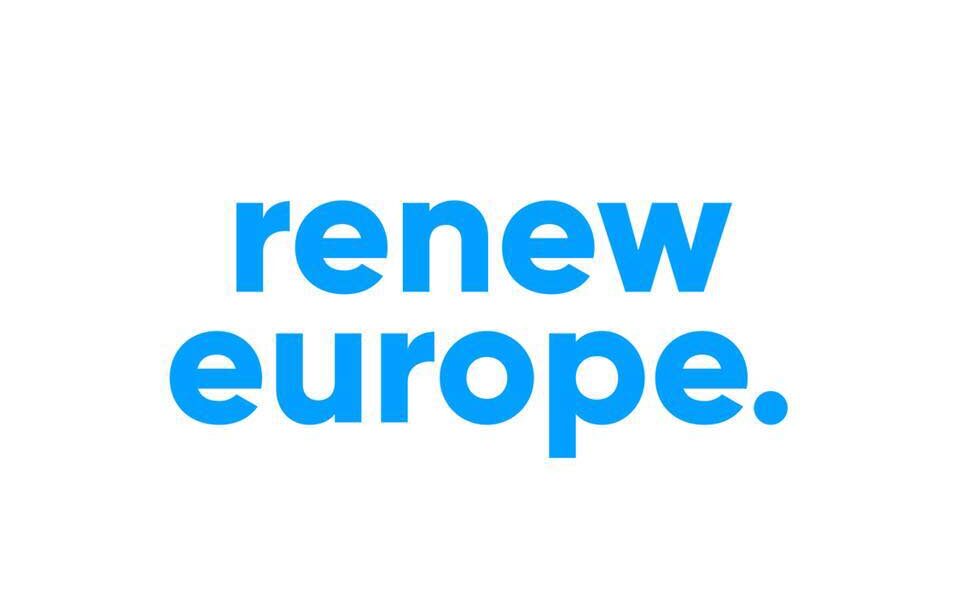
Renew Europe (Renew)
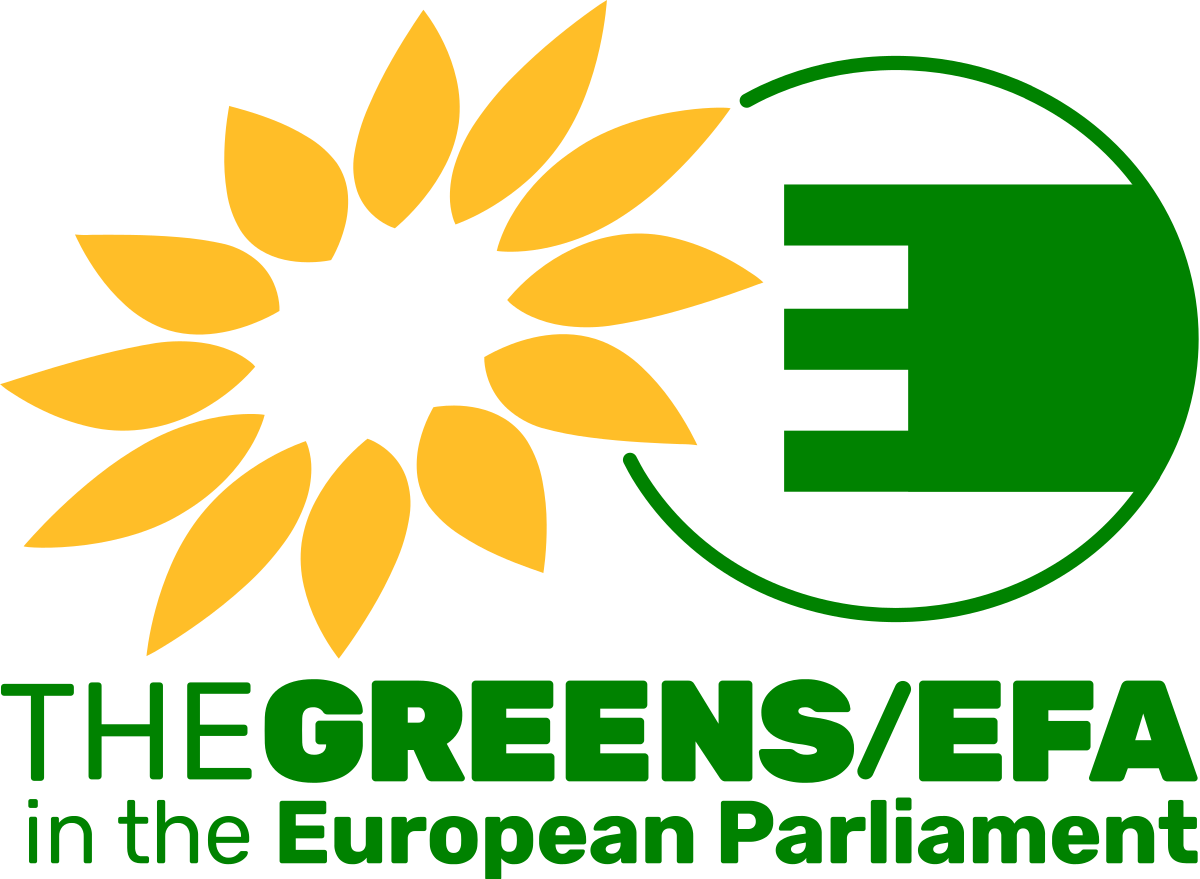
Greens/European Free Alliance (Greens/EFA)
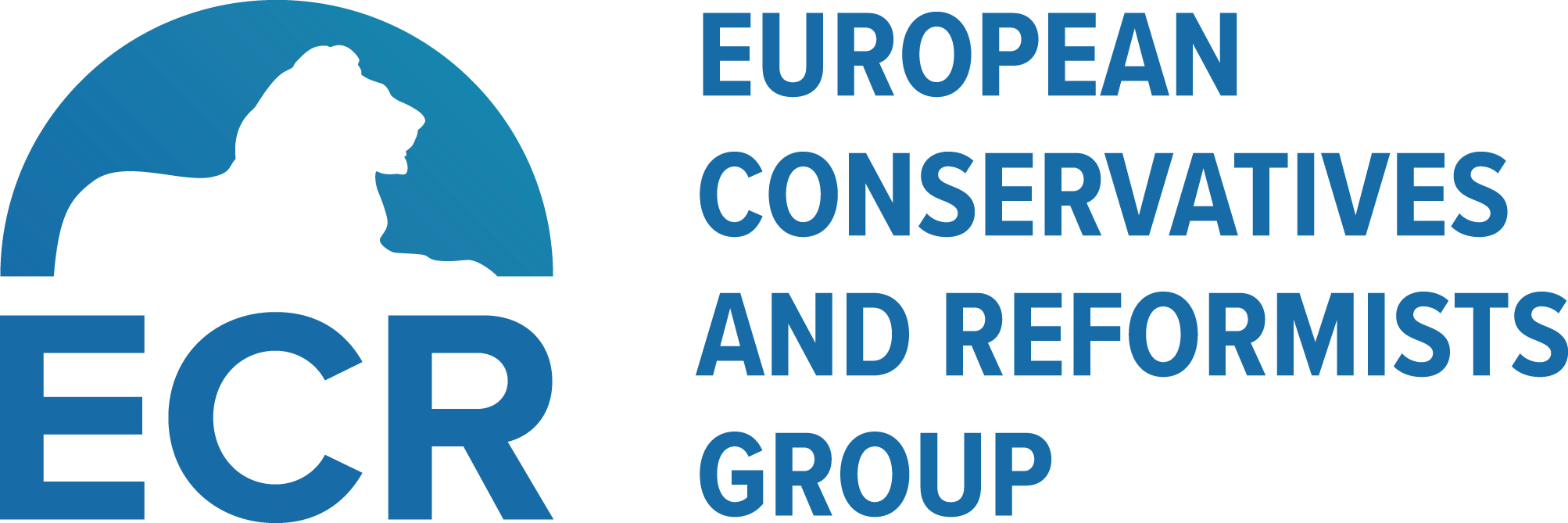
The European Conservatives and Reformists Group (ECR)

Identity and Democracy Group (ID)

The Left (GUE/NGL)
EU Watch is a non-partisan non-profit non-governmental organisation
Committee on Foreign Affairs (AFET)
AFET is composed of 79 members and is chaired by David McAllister (EPP/Germany). Within it, the EPP, as the largest group in the Parliament, has 19 members, followed by S&D with 16 members, and Renew with 11 members. The division of seats closely mirrors the overall composition of the European Parliament by political groups.
Tasks of the AFET Committee
The Committee on Foreign Affairs is responsible for scrutinising and monitoring of the European Union’s foreign policy. It is assisted by a Subcommittee on Security and Defence (SEDE) and a Subcommittee on Human Rights (DROI). The Committee’s powers and responsibilities, as defined in the Rules of Procedure of the European Parliament, cover the following:
- The common foreign and security policy (CFSP) and the common security and defence policy (CSDP);
- Oversight of the European External Action Service, the diplomatic service of the EU;
- Strengthening political relations with third countries by means of cooperation and assistance programmes; and more.
Perhaps unsurprisingly, older men form the majority of the Committee. Out of 79 members, 58 are male, while only 21 are female, resulting in a noticeable gender imbalance. The average age of an MEP at AFET is 57 years old. Out of the 79 members, over 65% are older than 50 years. This is not surprising, considering that foreign affairs have traditionally been considered an “experienced area” and many of its members join as former members of their national parliaments, or as former ministers.
Who are the members of the Commitee?
The Committee on Foreign Affairs is composed of 79 sitting members, four Vice-Chairs and a Chair of the Committee. Also, the Committee has 76 substitute members.
Click on the button below to see the members of the Committee. Note: Images © European Union 2023 – Source : EP.
Country: Germany
National party: Christlich Demokratische Union Deutschlands (CDU)
European Party: Group of the European People’s Party (EPP)
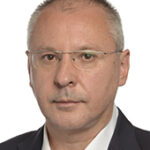
Country: Bulgaria
National party: Bulgarian Socialist Party
European Party: Group of the Progressive Alliance of Socialists and Democrats (S&D)
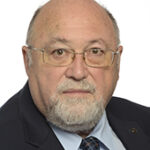
Country: Bulgaria
National party: Union of Democratic Forces
European Party: Group of the European People’s Party (EPP)
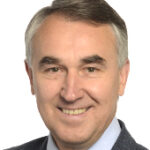
Country: Lithuania
National party: Lietuvos Respublikos liberalų sąjūdis
European Party: Renew Europe Group (RE)
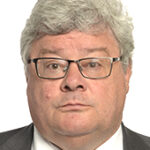
Country: Germany
National party: Bündnis 90/Die Grünen
European Party: Group of the Greens/European Free Alliance
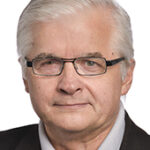
Country: Poland
National party: Sojusz Lewicy Demokratycznej – Unia Pracy
European Party: Group of the Progressive
Alliance of Socialists and Democrats (S&D)
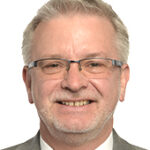
Country: Germany
National party: Christlich Demokratische Union Deutschlands (CDU)
European Party: Group of the European People’s Party (EPP)
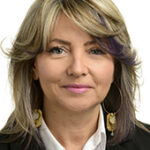
Country: Croatia
National party: Hrvatska Demokratska Zajednica (HDZ)
European Party: Group of the European People’s Party (EPP)
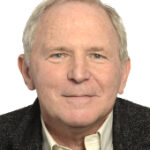
Country: France
National party: Liste Renaissance
European Party: Renew Europe Group (RE)
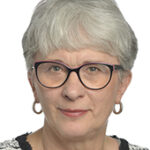
Country: Latvia
National party: Partija “VIENOTĪBA”
European Party: Group of the European People’s Party (EPP)
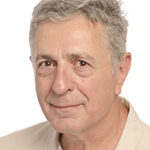
Country: Greece
National party: Coalition of the Radical Left
European Party: The Left group in the European Parliament – GUE/NGL (Left)
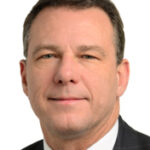
Country: France
National party: Rassemblement National
European Party: Identity and Democracy Group
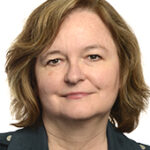
Country: France
National party: Liste Renaissance
European Party: Renew Europe Group (RE)
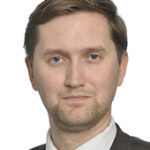
Country: Estonia
National party: Eesti Konservatiivne Rahvaerakond
European Party: Identity and Democracy Group
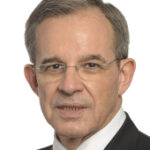
Country: France
National party: Rassemblement National
European Party: Identity and Democracy Group (ID)
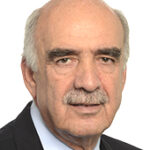
Country: Greece
National party: Nea Demokratia
European Party: Group of the European People’s Party (Christian Democrats)
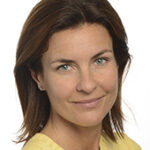
Country: Italy
National party: Partito Democratico
European Party: Group of the Progressive Alliance of Socialists and Democrats in the European Parliament (S&D)
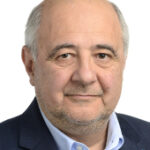
Country: Romania
National party: Partidul Naţional Liberal
European Party: Group of the European People’s Party (Christian Democrats)
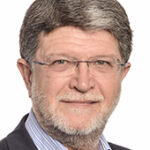
Country: Croatia
National party: Socijaldemokratska partija Hrvatske
European Party: Group of the Progressive Alliance of Socialists and Democrats in the European Parliament (S&D)

Country: Spain
National party: Partido Socialista Obrero Español
European Party: Group of the Progressive Alliance of Socialists and Democrats in the European Parliament (S&D)
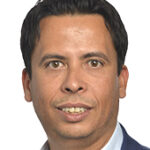
Country: France
National party: Europe Écologie
European Party: Group of the Greens/European Free Alliance

Country: Spain
National party: Esquerra Republicana de Catalunya
European Party: Group of the Greens/European Free Alliance
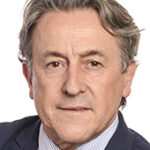
Country: Spain
National party: VOX
European Party: European Conservatives and Reformists Group (ECR)
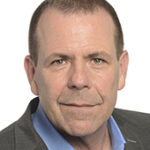
Country: Austria
National party: Freiheitliche Partei Österreichs
European Party: Identity and Democracy Group (ID)
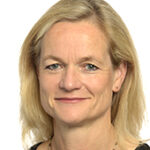
Country: Germany
National party: Bündnis 90/Die Grünen
European Party: Group of the Greens/European Free Alliance
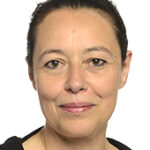
Country: Luxembourg
National party: Parti chrétien social luxembourgeois
European Party: Group of the European People’s Party (Christian Democrats)
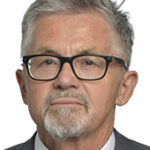
Country: Germany
National party: Alternative für Deutschland
European Party: Identity and Democracy Group (ID)
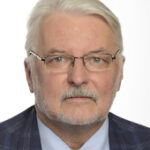
Country: Poland
National party: Prawo i Sprawiedliwość (PiS)
European Party: European Conservatives and Reformists Group (ECR)
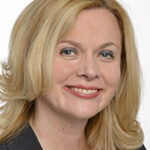
Country: Croatia
National party: Hrvatska Demokratska Zajednica (HDZ)
European Party: Group of the European People’s Party (EPP)
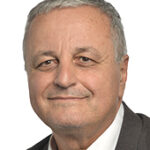
Country: France
National party: Régions et Peuples Solidaires
European Party: Group of the Greens/European Free Alliance
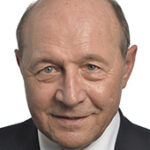
Country: Romania
National party: Partidul Mișcarea Populară
European Party: Group of the European People’s Party (EPP)
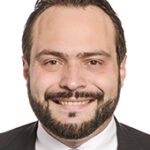
Country: Italy
National party: Movimento 5 Stelle
European Party: Non-attached member

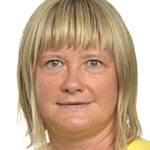
Country: Hungary
National party: Fidesz-Magyar Polgári Szövetség-Kereszténydemokrata Néppárt
European Party: Non-attached member

Country: France
National party: Place publique
European Party: Group of the Progressive Alliance of Socialists and Democrats (S&D)
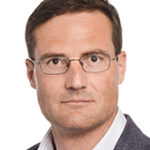
Country: Hungary
National party: Jobbik – Konzervatívok
European Party: Non-attached member
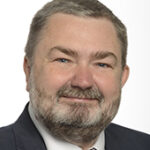
Country: Poland
National party: Prawo i Sprawiedliwość (PiS)
European Party: European Conservatives and Reformists Group (ECR)
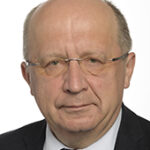
Country: Lithuania
National party: Tėvynės sąjunga-Lietuvos krikščionys demokratai
European Party: Group of the European People’s Party (EPP)

Country: Sweden
National party: Kristdemokraterna
European Party: Group of the European People’s Party (EPP)
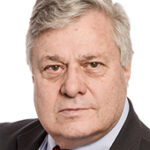
Country: Spain
National party: Partido Popular
European Party: Group of the European People’s Party (EPP)
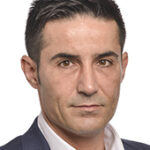
Country: Romania
National party: Partidul Social Democrat
European Party: Group of the Progressive Alliance of Socialists and Democrats in the European Parliament (S&D)
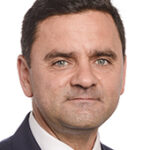
Country: Spain
National party: Partido Socialista
European Party: Group of the Progressive Alliance of Socialists and Democrats in the European Parliament (S&D)
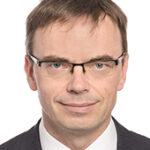
Country: Estonia
National party: Sotsiaaldemokraatlik Erakond
European Party: Group of the Progressive Alliance of Socialists and Democrats in the European Parliament (S&D)
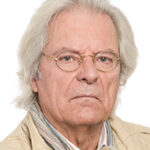
Country: Spain
National party: Independent
European Party: Renew Europe Group (RE)
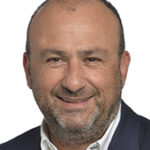
Country: Cyprus
National party: Movement for Social Democracy EDEK
European Party: Group of the Progressive Alliance of Socialists and Democrats in the European Parliament (S&D)
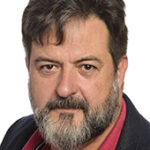
Country: Spain
National party: Izquierda Unida
European Party: The Left group in the European Parliament – GUE/NGL (Left)
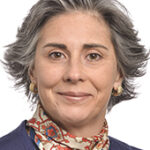
Country: Portugal
National party: Partido Socialista
European Party: Group of the Progressive Alliance of Socialists and Democrats in the European Parliament (S&D)
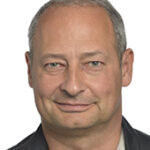
Country: Austria
National party: Sozialdemokratische Partei Österreichs
European Party: Group of the Progressive Alliance of Socialists and Democrats in the European Parliament (S&D)
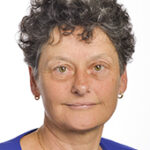
Country: Netherlands
National party: GroenLinks
European Party: Group of the Greens/European Free Alliance
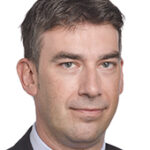
Country: Romania
National party: Reînnoim Proiectul European al României
European Party: Renew Europe Group (RE)

Country: Spain
National party: PODEMOS
European Party: The Left group in the European Parliament – GUE/NGL (Left)

Country: Austria
National party: Die Grünen – Die Grüne Alternative
European Party: Group of the Greens/European Free Alliance
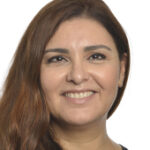
Country: France
National party: Renaissance
European Party: Renew Europe Group (RE)
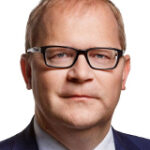
Country: Estonia
National party: Eesti Reformierakond
European Party: Renew Europe Group (RE)
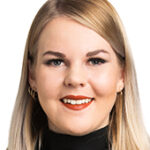
Country: Finland
National party: Vihreä liitto
European Party: Group of the Greens/European Free Alliance
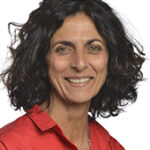
Country: Belgium
National party: Parti Socialiste
European Party: Group of the Progressive Alliance of Socialists and Democrats (S&D)
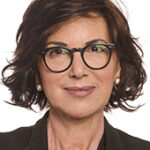
Country: Italy
National party: Lega
European Party: Identity and Democracy Group (ID)
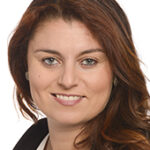
Country: Italy
National party: Lega
European Party: Identity and Democracy Group (ID)
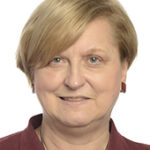
Country: Poland
National party: Prawo i Sprawiedliwość (PiS)
European Party: European Conservatives and Reformists Group (ECR)
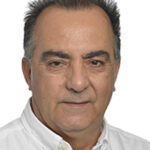
Country: Cyprus
National party: Progressive Party of Working People – Left – New Forces
European Party: The Left group in the European Parliament – GUE/NGL (Left)
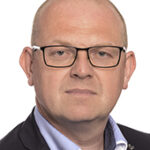
Country: Slovenia
National party: Gibanje Svoboda
European Party: Renew Europe Group (RE)
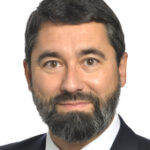
Country: Hungary
National party: Fidesz-Magyar Polgári Szövetség-Kereszténydemokrata Néppárt
European Party: Non-attached member

Country: Germany
National party: Sozialdemokratische Partei Deutschlands
European Party: Group of the Progressive Alliance of Socialists and Democrats (S&D)
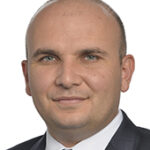
Country: Bulgaria
National party: Movement for Rights and Freedoms
European Party: Renew Europe Group (RE)
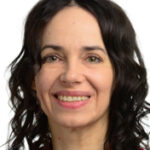
Country: Slovakia
National party: Kresťanskodemokratické hnutie
European Party: Group of the European People’s Party (Christian Democrats)
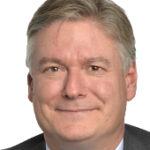
Country: Spain
National party: Partido Popular
European Party: Group of the European People’s Party (Christian Democrats)
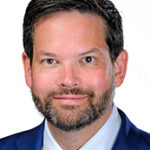
Country: Austria
National party: Österreichische Volkspartei
European Party: Group of the European People’s Party (Christian Democrats)
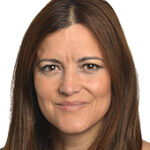
Country: Portugal
National party: Bloco de Esquerda
European Party: The Left group in the European Parliament – GUE/NGL (Left)
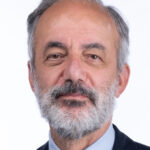
Country: Spain
National party: Partido Popular
European Party: Group of the European People’s Party (Christian Democrats)
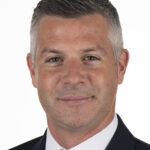
Country: Slovenia
National party: Socialni Demorkati
European Party: Group of the Progressive Alliance of Socialists and Democrats in the European Parliament (S&D)
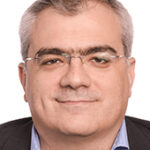
Country: Greece
National party: Communist Party of Greece
European Party: Non-attached member
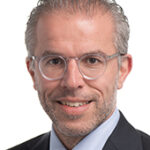
Country: Netherlands
National party: Partij van de Arbeid
European Party: Group of the Progressive Alliance of Socialists and Democrats in the European Parliament (S&D)
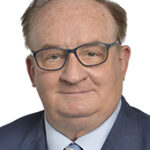
Country: Poland
National party: Prawo i Sprawiedliwość (PiS)
European Party: European Conservatives and Reformists Group (ECR)
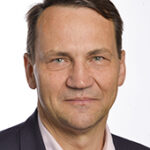
Country: Poland
National party: Platforma Obywatelska
European Party: Group of the European People’s Party (Christian Democrats)
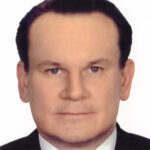
Country: Poland
National party: Prawo i Sprawiedliwość (PiS)
European Party: European Conservatives and Reformists Group (ECR)
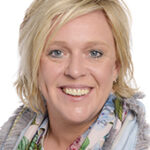
Country: Belgium
National party: Open Vlaamse Liberalen en Democraten
European Party: Renew Europe Group (RE)

Country: Denmark
National party: Dansk Folkeparti
European Party: Identity and Democracy Group (ID)
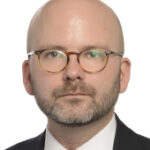
Country: Sweden
National party: Sverigedemokraterna
European Party: European Conservatives and Reformists Group (ECR)
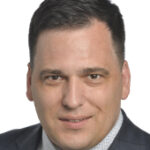
Country: Czech Republic
National party: Křesťanská a demokratická unie – Československá strana lidová
European Party: Group of the European People’s Party (Christian Democrats)
MEP Highlights
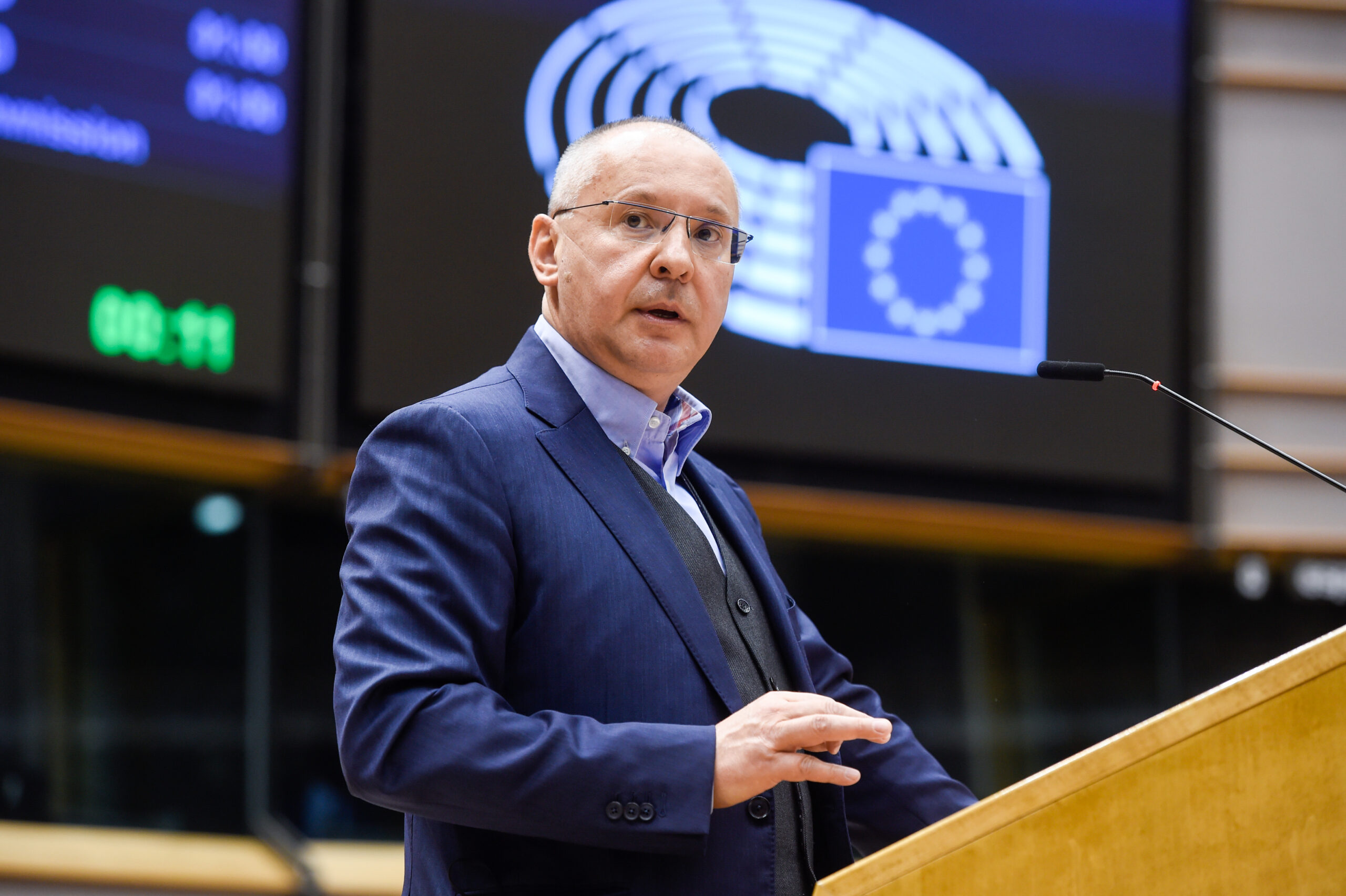
Sergei Stanishev (S&D/Bulgaria)
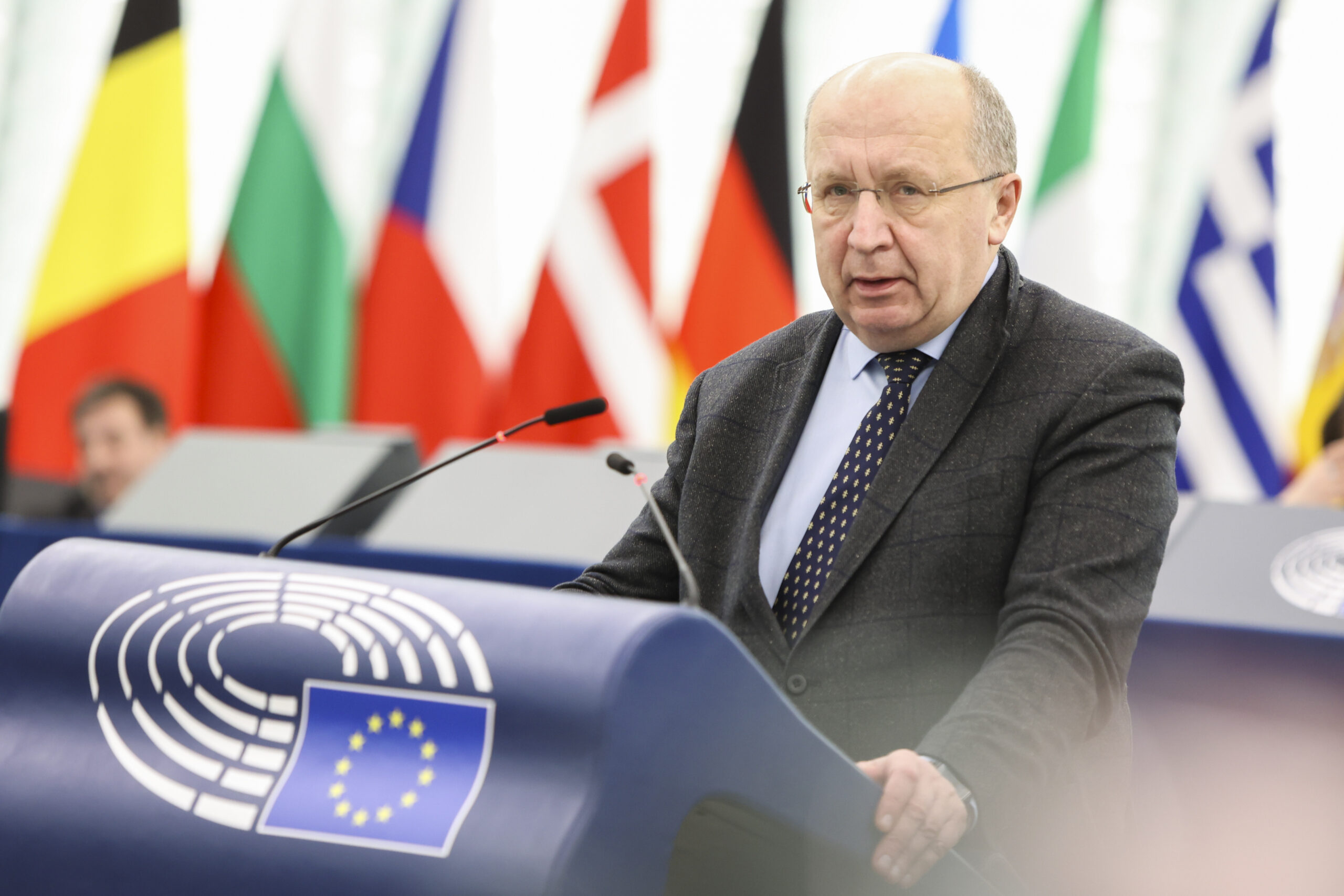
Andrius Kubilius
Attendance of AFET meetings
Overall, the average attendance at AFET is 42%. This becomes more significant when considering the averages of political parties and countries. The members of the largest political group in the European Parliament, the centre-right EPP, seem to be more present vis-à-vis their political competitors when it comes to joining the meetings – with an attendance rate of 51%, closely trailed by S&D with an average of 49%.
On both extremes of the political spectrum, ‘the Left’ and ‘Identity & Democracy (ID)’ members attend the fewest meetings, with 20 out of 117 meetings for the Left, and 31 out of 117 meetings for Identity & Democracy.
From the 117 documents detailing attendance of meetings, the Chair of AFET, David McAllister (PIC 19), has attended the most Committee meetings – 105 in total. The Vice-Chairs of AFET, apart from McAllister’s party colleague Željana Zovko (EPP/Croatia) who has attended 80 meetings, have attended considerably fewer meetings: Witold Waszczykowski (ECR/Poland) attended 50 meetings, Urmas Paet attended 43 meetings (Renew/Estonia), and Sergei Stanishev attended 35 meetings (S&D/Bulgaria).
MEP Highlights
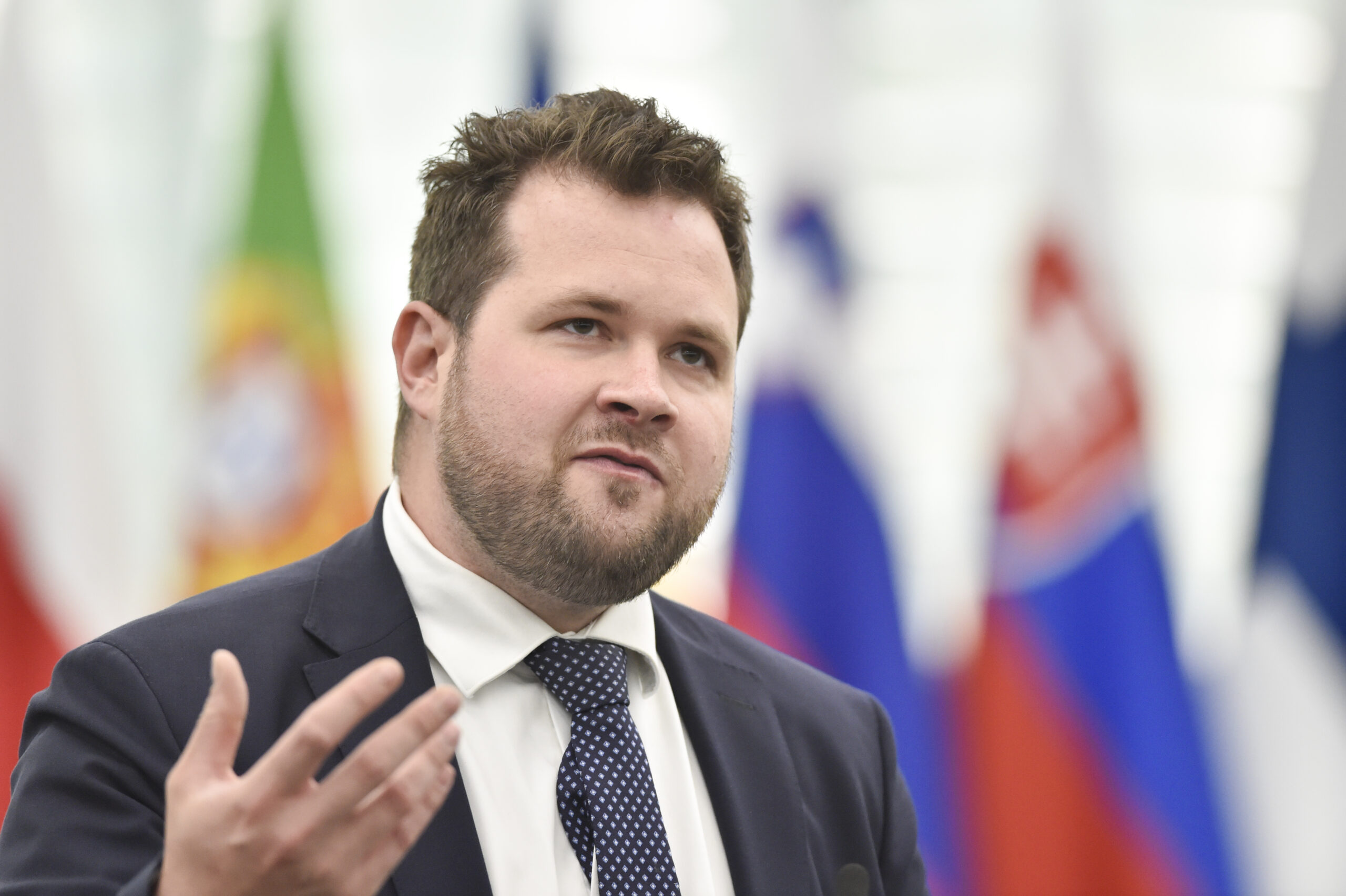
Anders Vistisen (ID/Denmark)
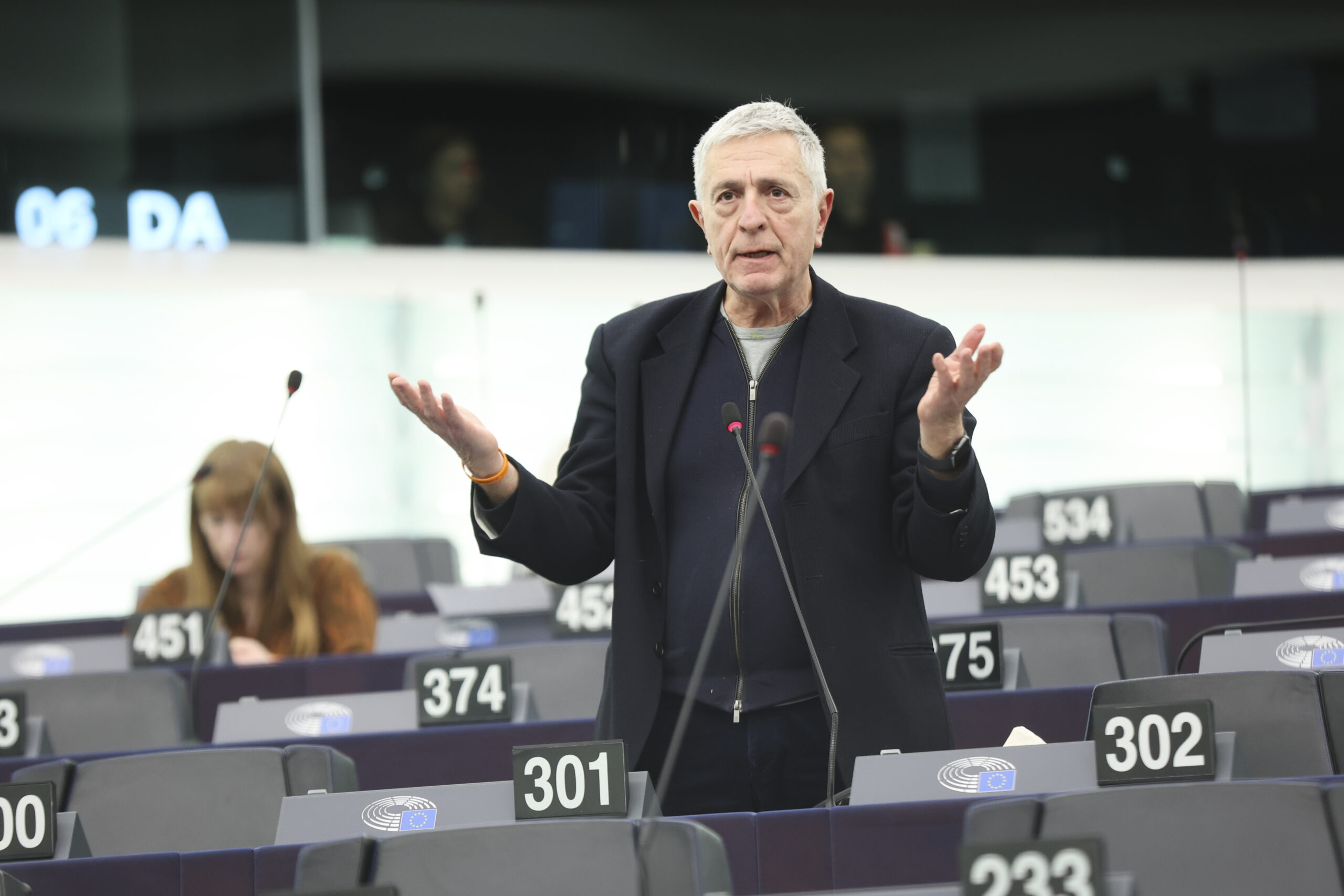
Stelios Kouloglou (the Left/Greece)
You can read more about our findings in our report “Beyond Rhetoric: A Closer Look at the Work of the Members of the European Parliament,” which you can download below.
Subcommittee on Human Rights (DROI)
The Subcommittee on Human Rights is one of the two subcommittees of the Foreign Affairs Committee. It is responsible for ensuring respect for fundamental rights, democracy, and the rule of law in the EU’s external and internal relations. The subcommittee is composed of 30 members and has been chaired by Udo Bullmann (S&D/Germany) since January 2023.
This change came about due to the revelation of the so-called ‘Qatargate’ corruption scandal, which deeply impacted current and former members of the European Parliament. In December 2022, several MEPs were accused of accepting money from Qatar, Mauritania, and Morocco in exchange for influencing the European Parliament’s decisions in their favor.
MEP Highlights
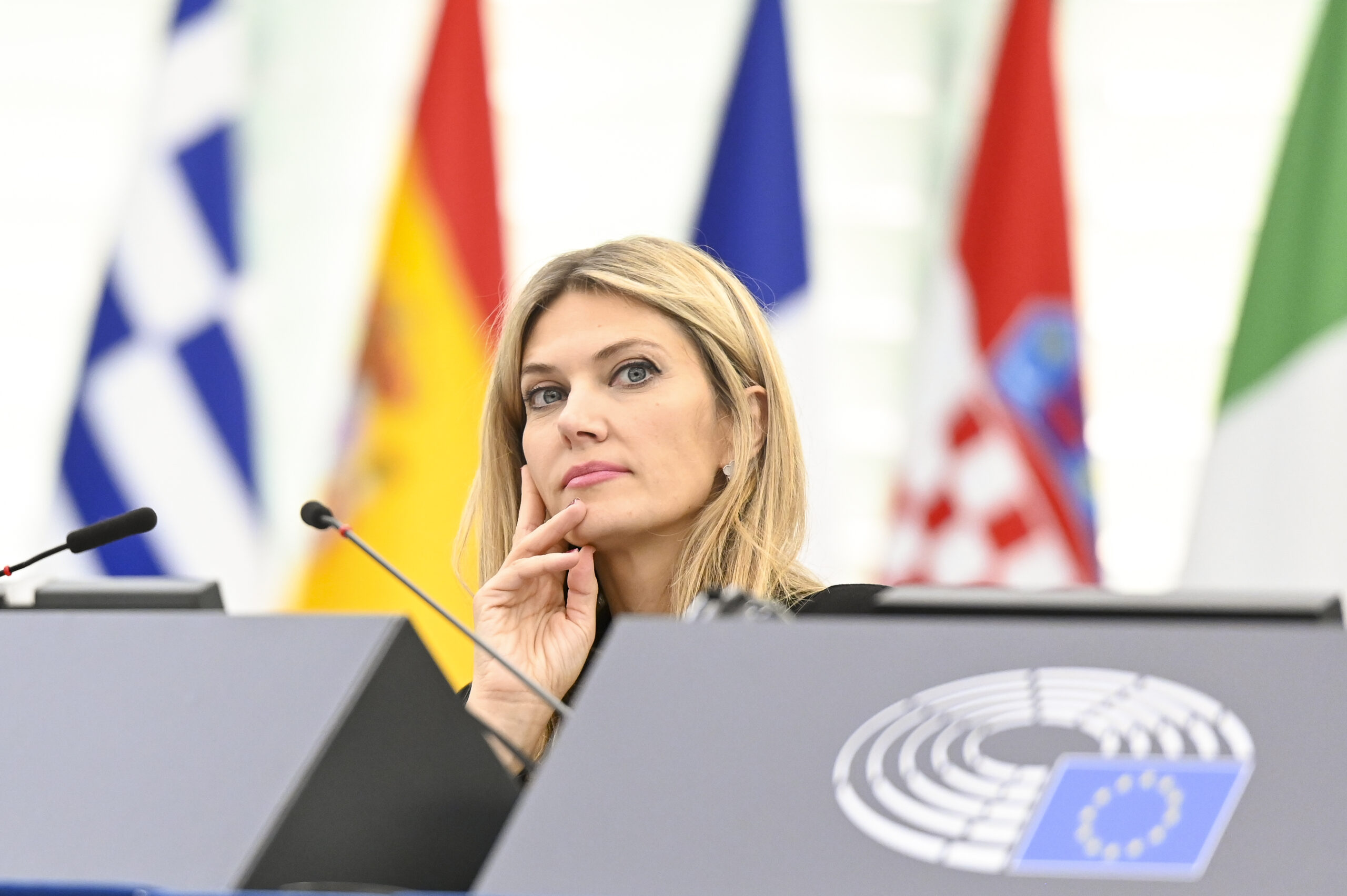
Eva Kaili (S&D/Greece)
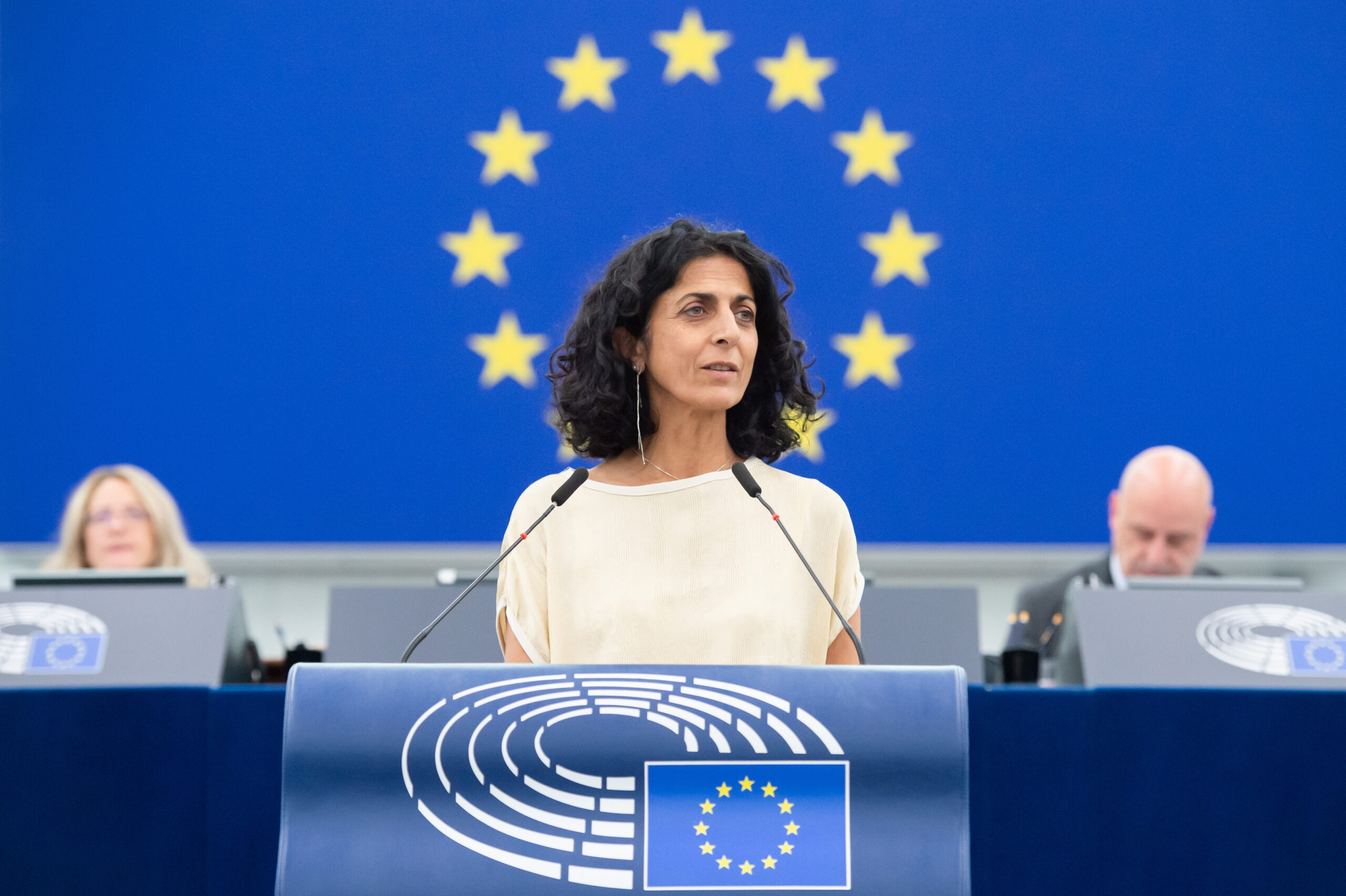
Maria Arena (S&D/Belgium)
As noted for AFET, older men form the majority of this Subcommittee. Among the 30 members, 11 MEPs are women, while 19 are men. Compared to its parent Committee AFET (26%), DROI has the highest proportion of women, who make up 37% of the Committee. In DROI, the average age is 56 years.
DROI Members’ Attendance at Meetings
On average, DROI members have attended 31 out of 76 meetings, or 41%. However, contrary to AFET, the Chair, Udo Bullmann, is not the MEP attending the most meetings: out of 76 meetings, he attended only 15. The member with the highest attendance is Nacho Sanchez Amor (S&D/Spain), who attended 64 meetings, missing only 12.
The Chair is accompanied by four Vice-Chairs, among whom Hannah Neumann (Greens/ALE/Germany) and Bernard Guetta (Renew/France) attended 56 and 54 meetings respectively, while the MEPs from the two largest political groups, Raphaël Glucksmann (S&D/France) and Christian Sagartz (EPP/Austria), attended 32 and 20 meetings respectively.
MEPs from the Greens have, on average, attended the most meetings: 46, compared to ECR and ID who rank the lowest on a group level – 16 and 22 respectively, which is significantly lower than the average of the whole subcommittee and of the other political groups.
At the bottom, we find Anja Haga (EPP/Netherlands, joined in 2023) with only 4 attended meetings, Greek MEP Kostas Papadakis (Independent, joined in 2023) with only 5 meetings, and ID’s Maximilian Krah with 7 meetings.
MEP Highlight
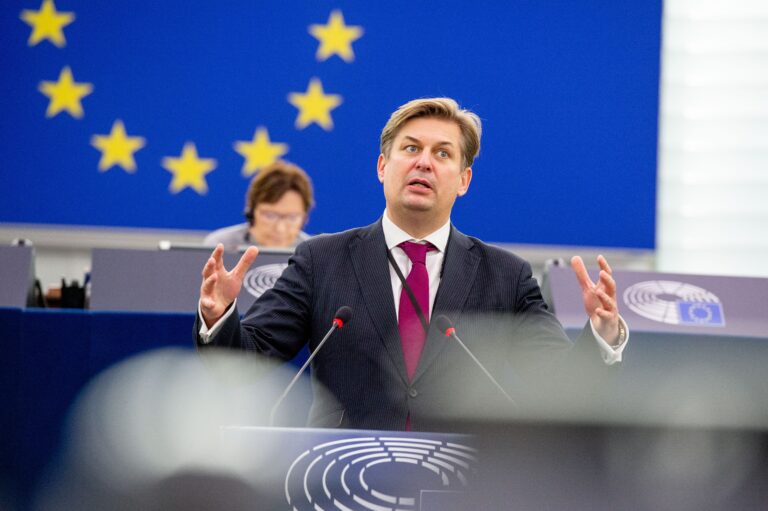
Maximilian Krah (ID/Germany)
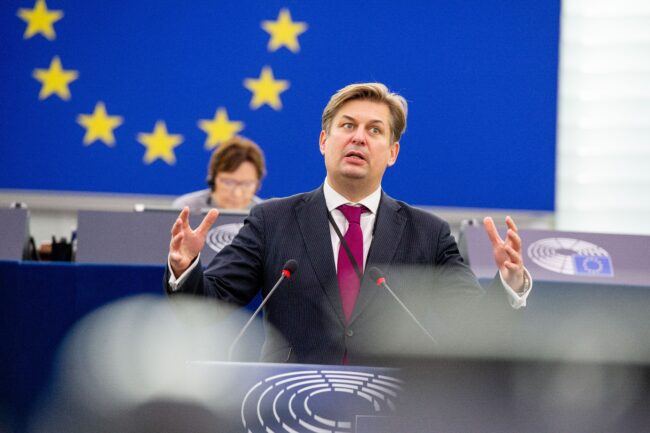
Maximilian Krah (ID/Germany)
Subcommittee on Security and Defense (SEDE)
SEDE comprises 29 members and is chaired by French MEP Nathalie Loiseau (Renew). The Vice-Chairs are Nikos Papandreou (S&D/Greece), Rasa Jukneviciene (EPP/Lithuania), Ozlem Demirel (the Left/Germany), and Lukas Mandl (EPP/Austria). Members of Subcommittees are chosen from its parent Committee, including the substitute members.
Out of 70 meetings, the Chair of SEDE, Nathalie Loiseau (Renew/France), has attended (and chaired) most Committee meetings – 69, missing only one. Her political colleague Petras Auštrevičius (Renew/Lithuania), together with Arnaud Danjean (EPP/France) and Mick Wallace (the Left/Ireland), follow closely with 60 attended meetings.
Overall, the average attendance is 28 meetings out of 70, or 40% – equal with the attendance of AFET. However, all Vice-Chairs (four of them) rank lower than the average for the whole committee – Özlem Demirel, Rasa Juknevičienė, and Lukas Mandl with 23 attended meetings, while Nikos Papandreou attended only 5 out of 70. Papandreou is the son of former Greek Prime Minister Andreas Papandreou, and his brother George Papandreou also served as a Prime Minister.
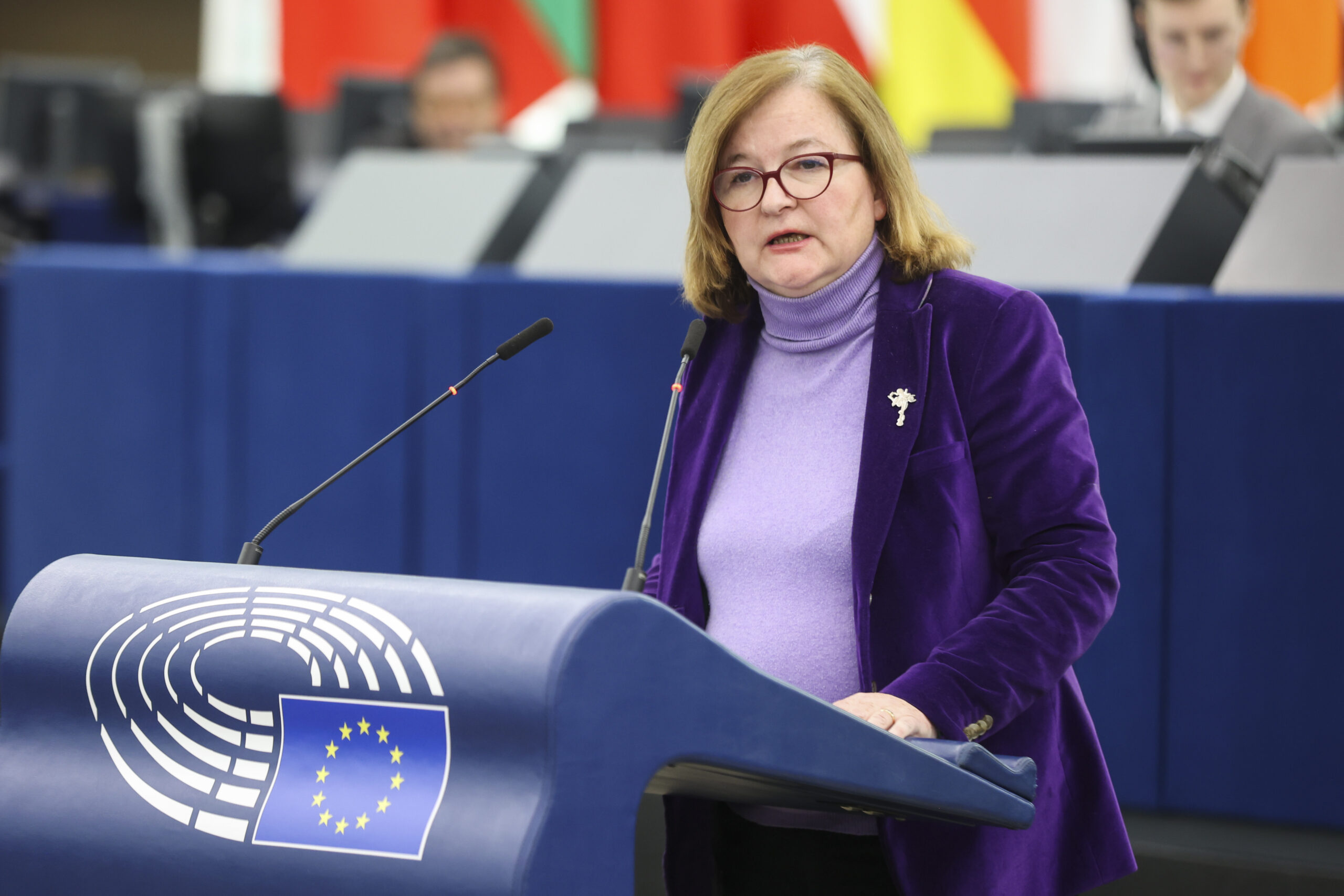
Nathalie Loiseau (Renew/France)
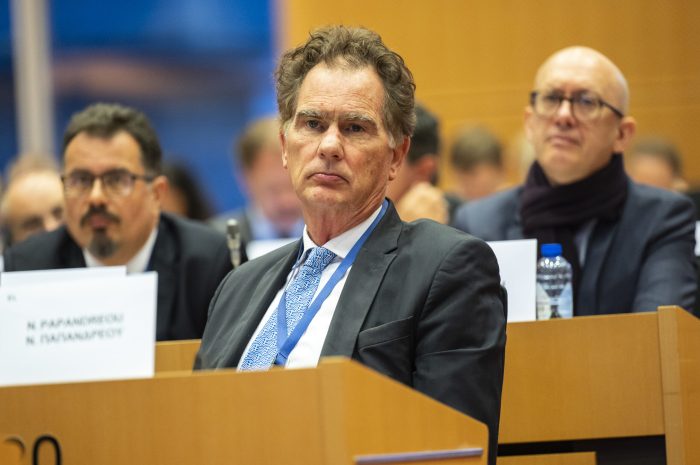
Nikos Papandreou (S&D/Greece)
Attendance of Security and Defense subcommittee
“The remit of the Subcommittee on Security and Defence is to provide a forum for thorough public debate on, and detailed parliamentary scrutiny of, all EU action in the area of the CSDP, whether it concerns institutions, capabilities or operations.”, as defined by its Chair. It is one of the two supporting pillars of AFET, alongside the Human Rights Subcommittee (DROI). 2
SEDE comprises 29 members and is chaired by French MEP Nathalie Loiseau (Renew). The Vice-Chairs are Nikos Papandreou (S&D/Greece), Rasa Jukneviciene (EPP/Lithuania), Ozlem Demirel (the Left/Germany), and Lukas Mandl (EPP/Austria). Members of Subcommittees are chosen from its parent Committee, including the substitute members.
The Chair of SEDE, Nathalie Loiseau (Renew/France), has attended (and chaired) most Committee meetings – 69, missing only one. Her political colleague Petras Auštrevičius (Renew/Lithuania), together with Arnaud Danjean (EPP/France) and Mick Wallace (the Left/Ireland), follow closely with 60 attended meetings.
Overall, the average attendance is 28 meetings out of 70, or 40% – equal with the attendance of AFET. However, all Vice-Chairs (four of them) rank lower than the average for the whole committee – Özlem Demirel, Rasa Juknevičienė, and Lukas Mandl with 23 attended meetings, while Nikos Papandreou attended only 5 out of 70. Papandreou is the son of former Greek Prime Minister Andreas Papandreou, and his brother George Papandreou also served as a Prime Minister.
The far-right’s only MEPs, Jean-Lin Lacapelle (ID/France) and Maximilian Krah (ID/Germany), rank at the very bottom – with Lacapelle attending only 1 out of 70 meetings, while Krah did not attend a single meeting of SEDE.
Whether driven by curiosity or criticism, members of SEDE also address the President of the European Commission, the European Council, or the High Representative for Foreign Affairs with questions. Collectively, SEDE has posed on average 54 written questions, fourteen fewer than those posed by AFET members. The ‘most curious or critical MEP,’ Ozlem Demirel (the Left/Germany), sent 230 questions to the relevant leaders.
Committee on Civil Liberties, Justice and Home Affairs (LIBE)
Contrary to what was observed in the previous Committees and Subcommittees, women form a slight majority in this Committee, with 35 members, accounting for 51% of the committee. More specifically, women between the ages of 60 and 69 years are the dominant group, as they account for 20% of all LIBE members.
For 70% of the LIBE Committee members, it is their first time serving in the European Parliament, while 23% are finishing their second term. The Chair of the Committee, Juan Fernando Lopez Aguilar (S&D/Spain), is in his third term as a Member of the European Parliament. Sophia In’t Veld (Renew/Netherlands) is the most experienced in the LIBE Committee, as she is in her fourth term in the Parliament.
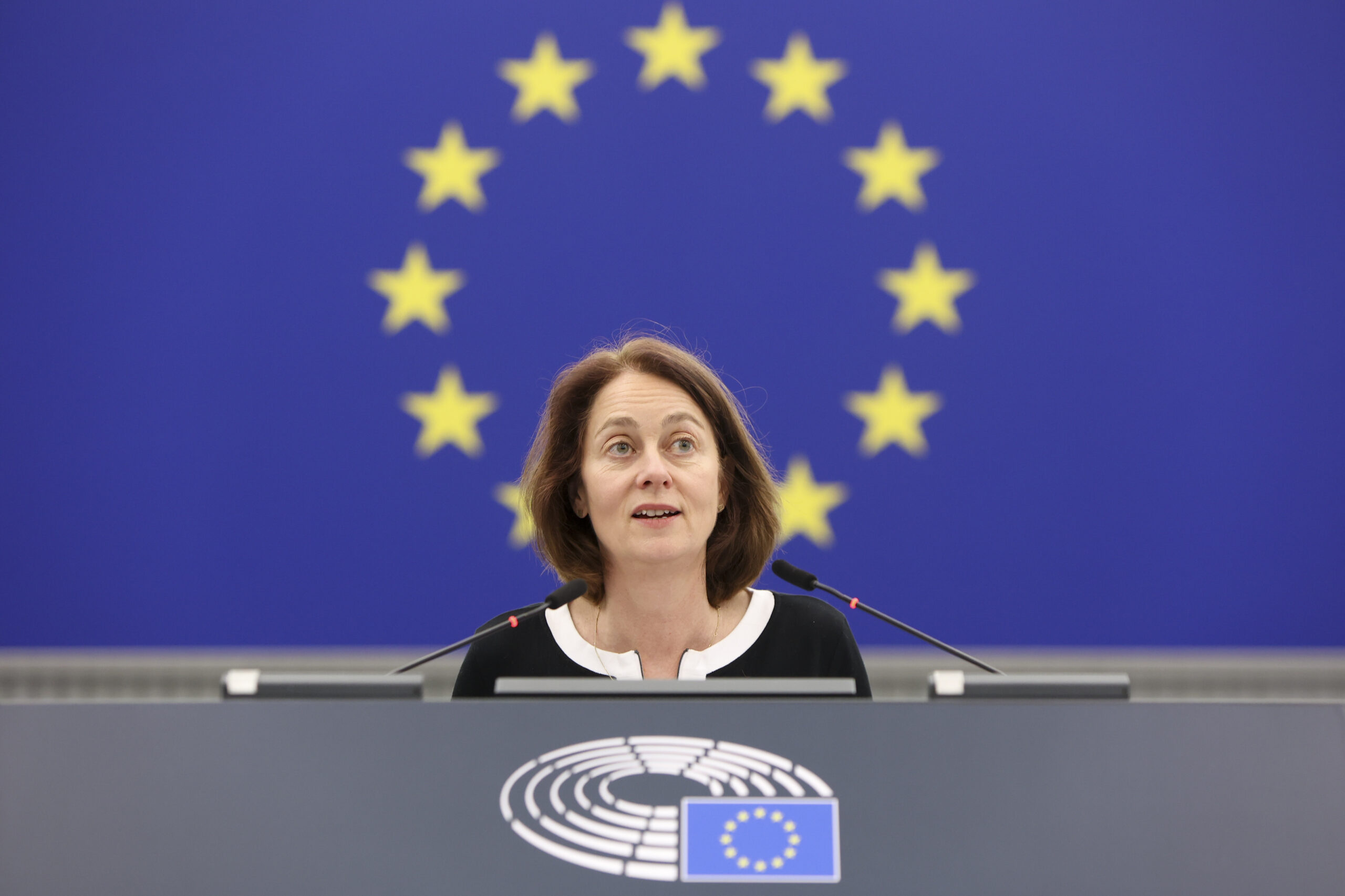
Katarina Barley (S&D/Germany)
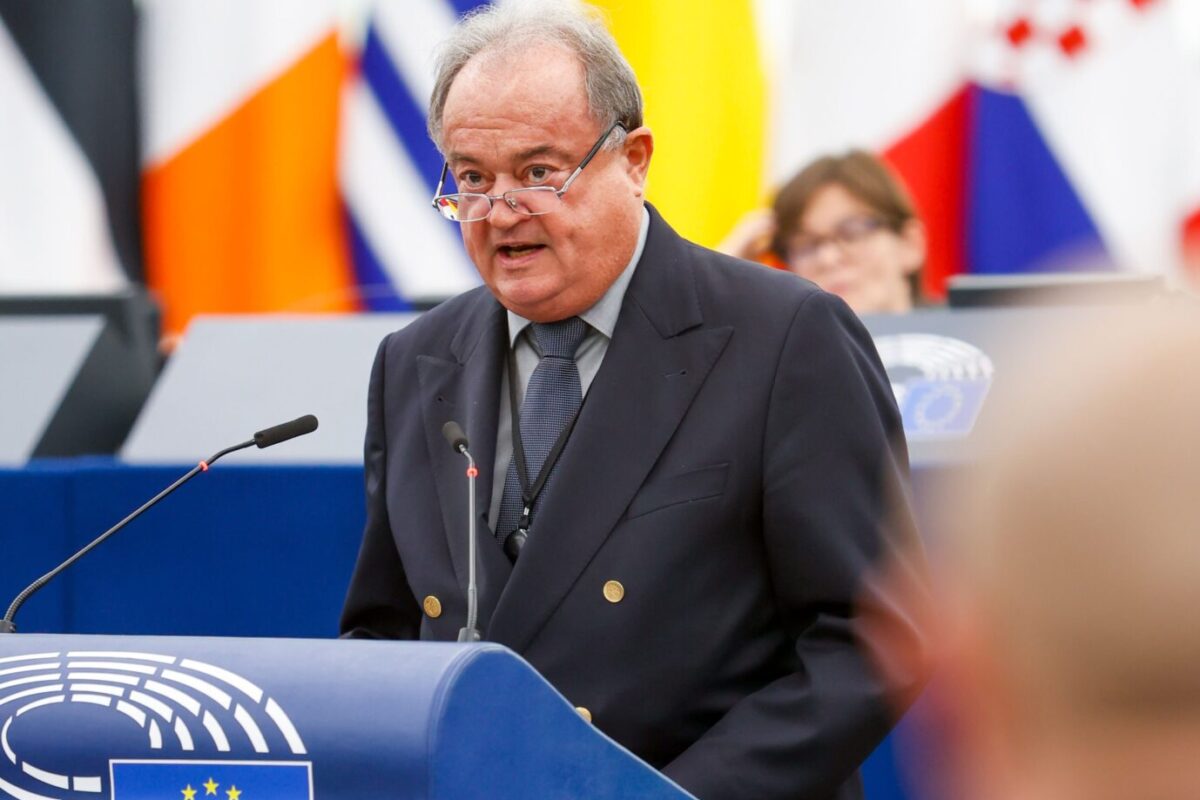
Vasile Blaga (EPP/Romania)
Speeches by LIBE members
On average, members of the LIBE Committee have delivered 98 speeches during plenary sessions. Clare Daly (Ireland), from the Left, is the MEP with the highest number of speeches, having delivered 518 speeches since 2019. She is followed by the Vice-President of the European Parliament from Germany, Katarina Barley (S&D), with 395 speeches. Trailing closely is the Chair of LIBE, Juan Fernando Lopez Aguilar, with 341 speeches.
The MEP with the fewest speeches is Vasile Blaga (EPP/Romania), a former President of the Senate in Romania, with only one speech. Just above him is Nadine Morano (EPP/France), with only 5 speeches, and in third position is another MEP from EPP, Karolin Braunsberger-Reinhold (Germany), who has given 7 speeches in plenary sessions.
The MEPs from the S&D, the Left, and ECR group have been the most active in taking the podium during plenary sessions. In contrast, members of the largest political group in the European Parliament, the Christian Democrats (EPP), score much lower, with 30% fewer speeches (64) than the average of 98 speeches. At the bottom are the MEPs from the ID group with 55 speeches, almost 50% fewer than the average rate.
Conclusion
The approach taken was to offer a snapshot and underscore the complexity and breadth of parliamentary work, which involves over 700 MEPs and a vast array of activities. However, a handful of indicators will not be able to break down the complex system of the EP to its fullest. Nevertheless, it highlights the need for innovative methods of capturing and understanding these less tangible aspects of parliamentary work.
The main take away is the evidently different operational approach of the far right and far left within the Parliament compared to more centrist parties. While it also opens up opportunities for further investigation, it is indicative of broader political trends and dynamics within the Parliament and potentially within European society. So how can the European Union function in an even more polarized Europe?
Being a good MEP involves more than just delivering speeches and asking questions. It requires a deep commitment to the European cause and a dedication to working towards a just, equal, and stable EU. It requires dialogue, collaboration and dedication to overcome challenges together as a strong union. To the readers, this shall be a reminder of the ideals and values at the heart of the European project. And to the MEPs, this shall serve as a reminder of their responsibility towards the over 445 million people they represent. The MEPs were entrusted with the task of representing EU citizens’ interests in the best way they see fit. That being said, we commend those MEPs who have taken their mandate seriously.
With this project, we want to affirm the citizens’ right to know what their elected MEPs are doing. This is a fundamental principle of democracy. By providing insights into MEPs’ activities, EU Watch contributes to the broader effort to enhance understanding, transparency, and accountability in the EU. At the same time, it is the EU institutions’ responsibility to provide accessible data. This is a critical aspect of transparency and accountability. By making data more accessible, EU institutions can empower citizens to engage more fully with the EU. It is a call to action for MEPs, EU institutions, and citizens alike, and a testament to the power of transparency, accountability, and democratic engagement in shaping the future of the EU.
Become an EU Watch supporter!
The foreign policy of the European Union in a nutshell
There are four major EU institutions involved in foreign policy decision-making: the Council (which brings together government ministers of the 27 member states), the European Commission, the European Parliament and the European External Action Service (EEAS) which is headed by the High Representative for Foreign and Security Policy (HRVP).
The HRVP (currently the Spaniard Josep Borrell) is appointed by the European Council (heads of government of the EU member states) for a term of usually five years. Ex officio, he is also a member of the European Commission, of which he is a vice-president.The HRVP also chairs meetings of the Foreign Affairs Council and as such has a leading role in two EU institutions, which is unique. The HRVP heads the European External Action Service (EEAS), which is the diplomatic service of the European Union. The EEAS manages EU delegations in third countries and prepares proposals for decisions and actions.
Decision-making on foreign policy is slightly different than in other policy areas.
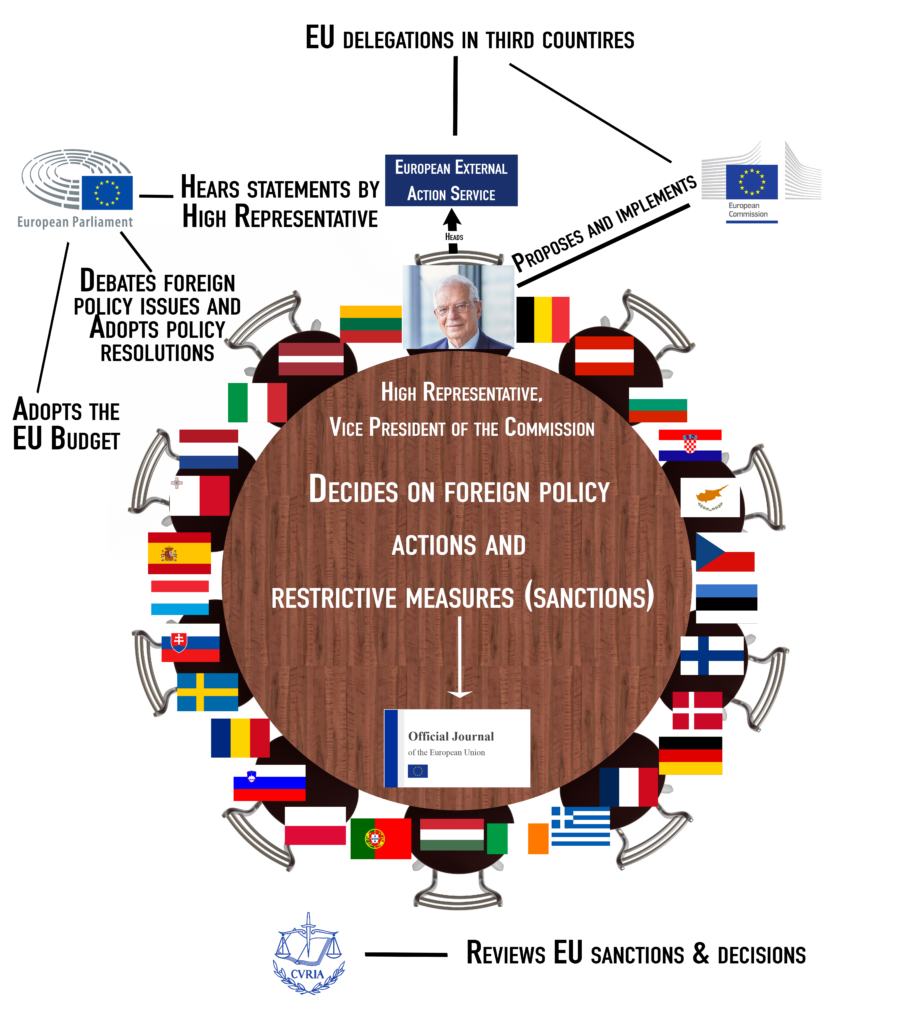
EU Watch is a non-partisan non-profit non-governmental organisation
Our newsletter
Do you want to subscribe to the EU Watch newsletter?
We will keep you informed about our latest publications and events. EU Watch will store your email address in our database. It will not be shared with third parties. You can unsubscribe at any time by clicking on the link at the bottom of the newsletter. Find out more in our privacy policy.
Become an EU Watch supporter!

EU Watch is a non-governmental organisation registered in Belgium that seeks to promote transparency, accountability and understanding of the European Union.
Read more about our mission and what we focus on.
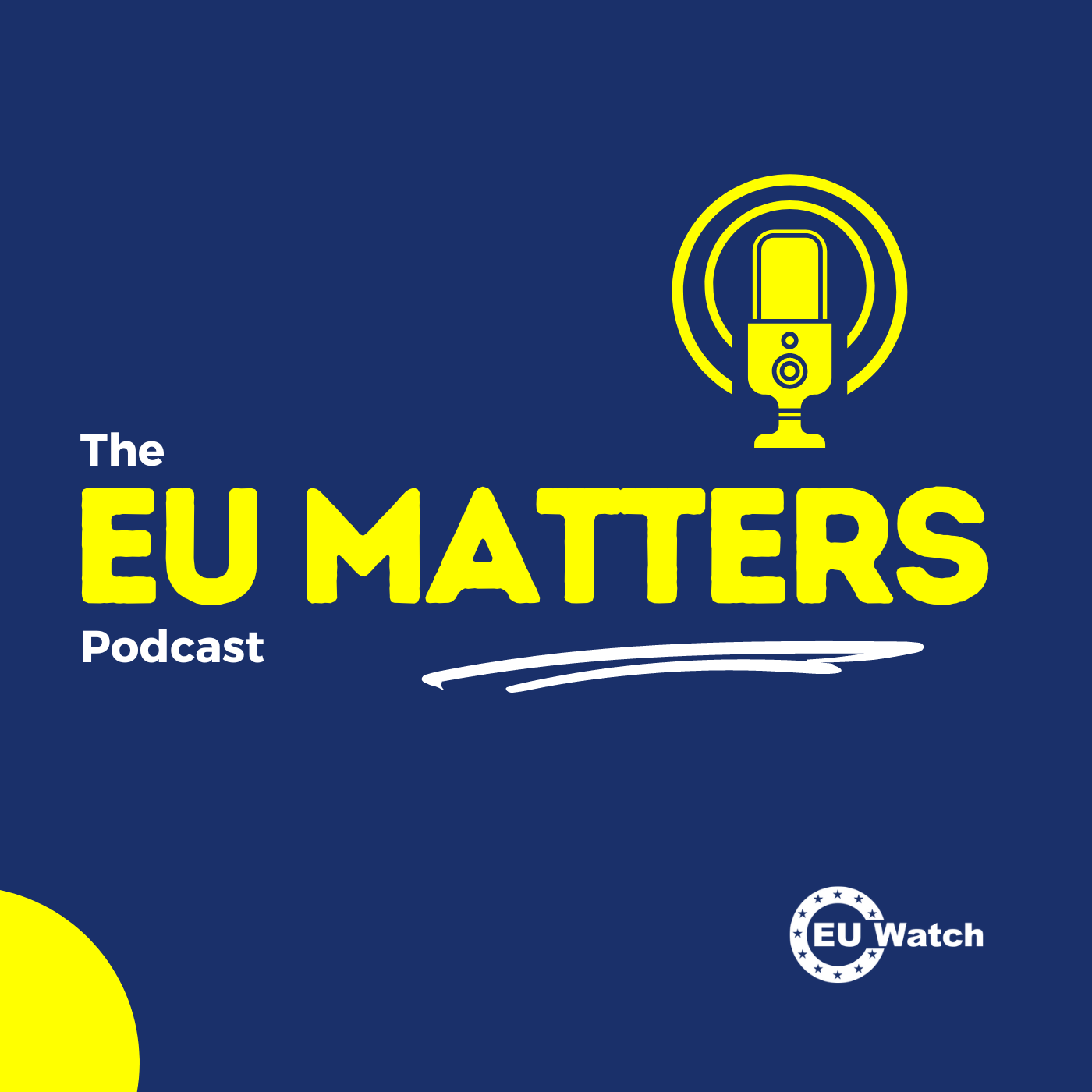
EU Watch has launched the “EU Matters” podcast. With this new format, we want to shed some light on subjects that are of importance to citizens and Brussels decision-makers alike.


